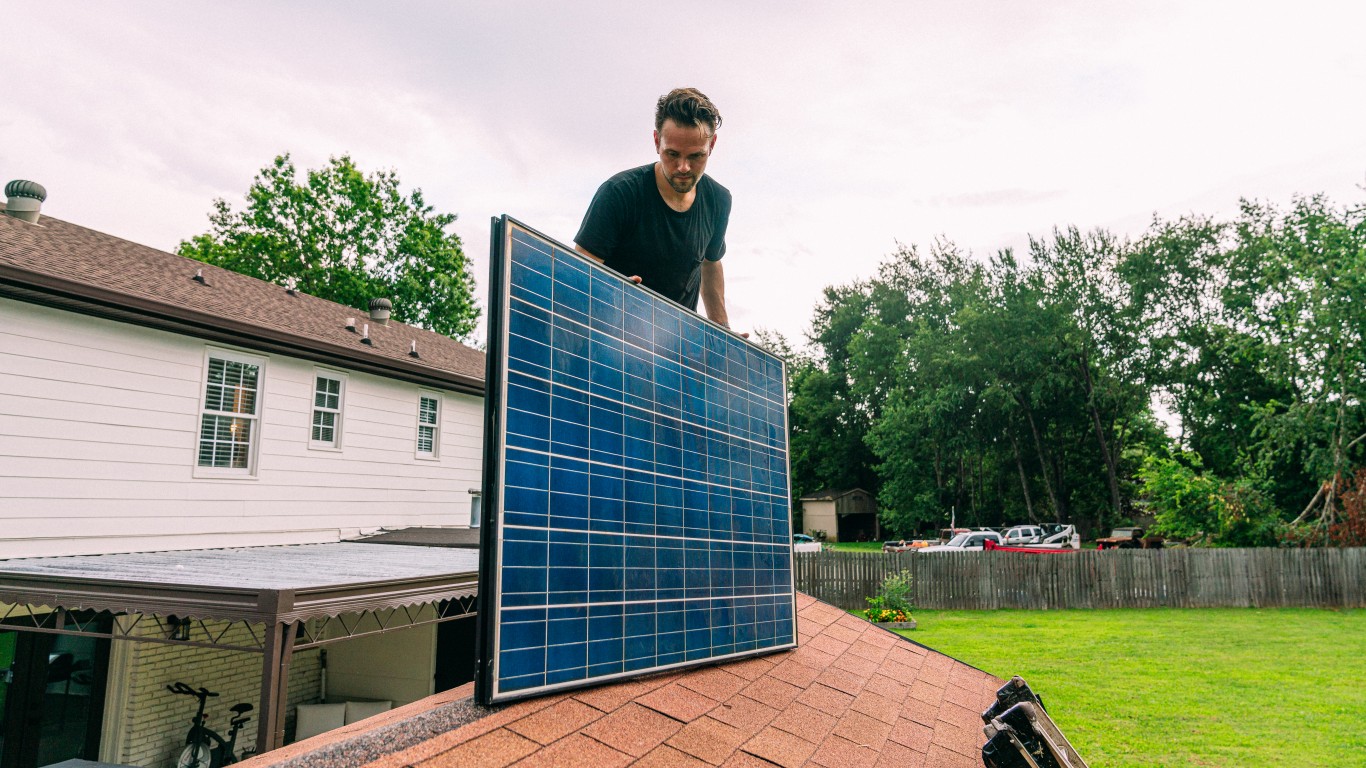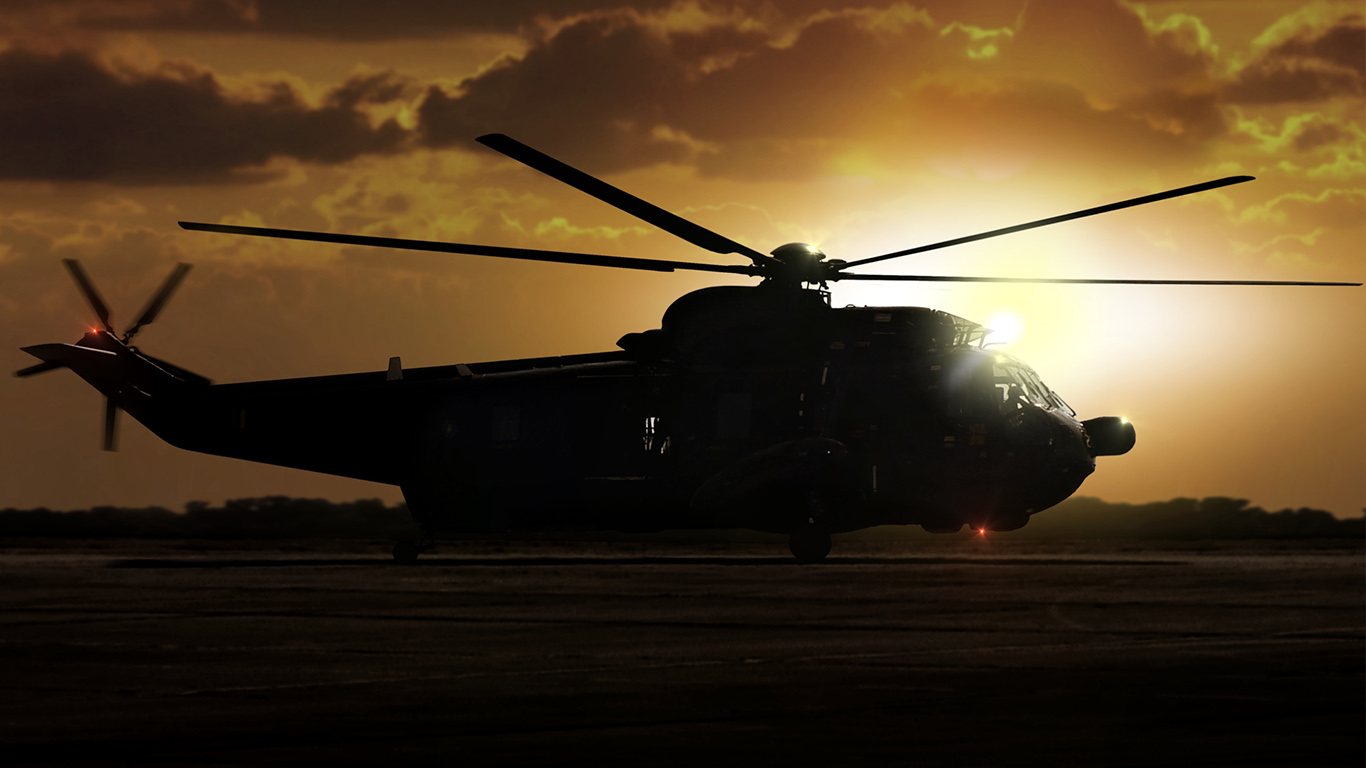
These facilities are used for training and deploying troops, for maintaining and testing weapons systems, for research and education, and aircraft testing. Given the space requirements of the military, the physical size of these installations can be considerable.
24/7 Wall Street has compiled a list of the 50 largest military bases in the United States. The facilities are listed in order of physical size, according to data from the Department of Defense’s Base Structure Report for fiscal year 2017.
Click here to see America’s largest military bases.
Click here to see our detailed findings and methodology.
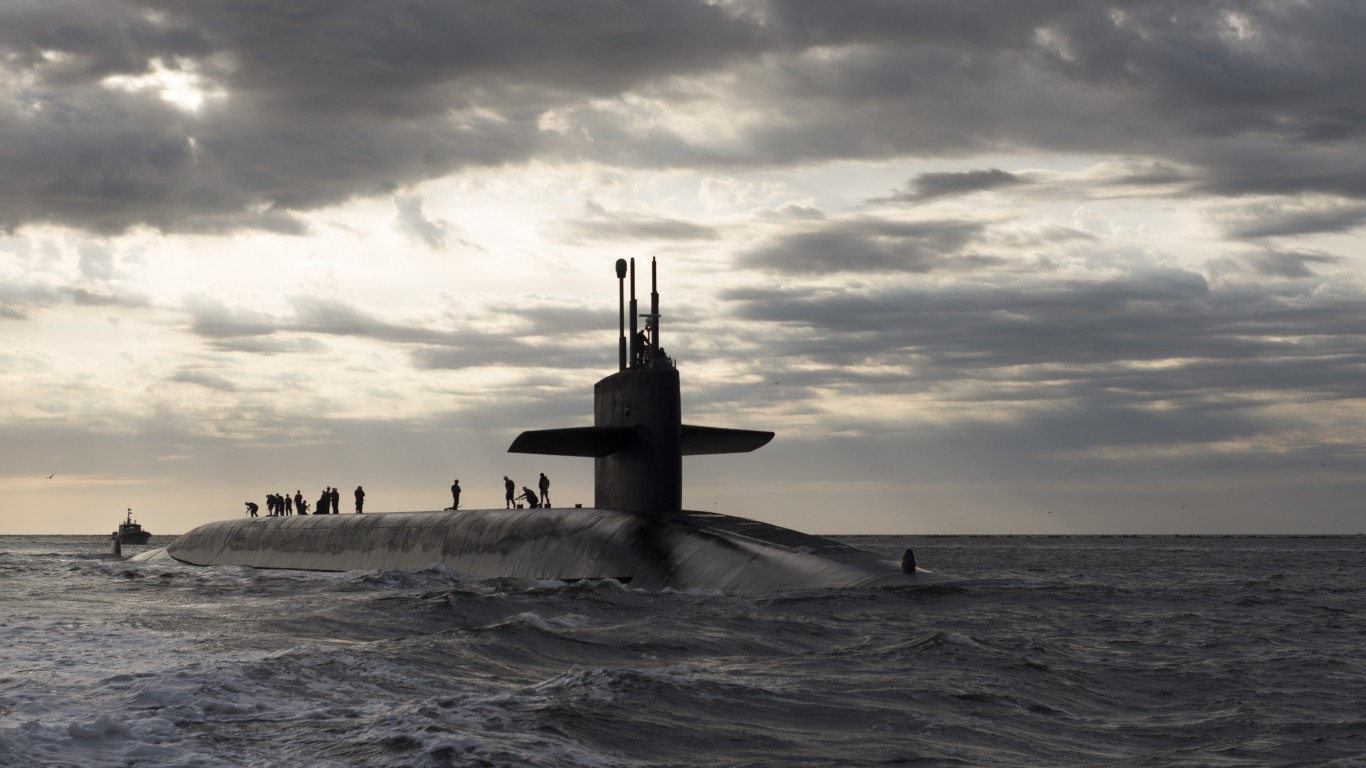
50. Kings Bay Navy Submarine Base
> State: Georgia
> Service branch: Navy
> Physical size (in acres): 16,616
> Active duty service members: 2,717
Kings Bay Navy Submarine Base is the East Coast base for Ohio-class submarines. The submarines, which the Navy calls “virtually undetectable undersea launch platforms of intercontinental missiles,” are equipped with Trident strategic ballistic missiles.
[in-text-ad]
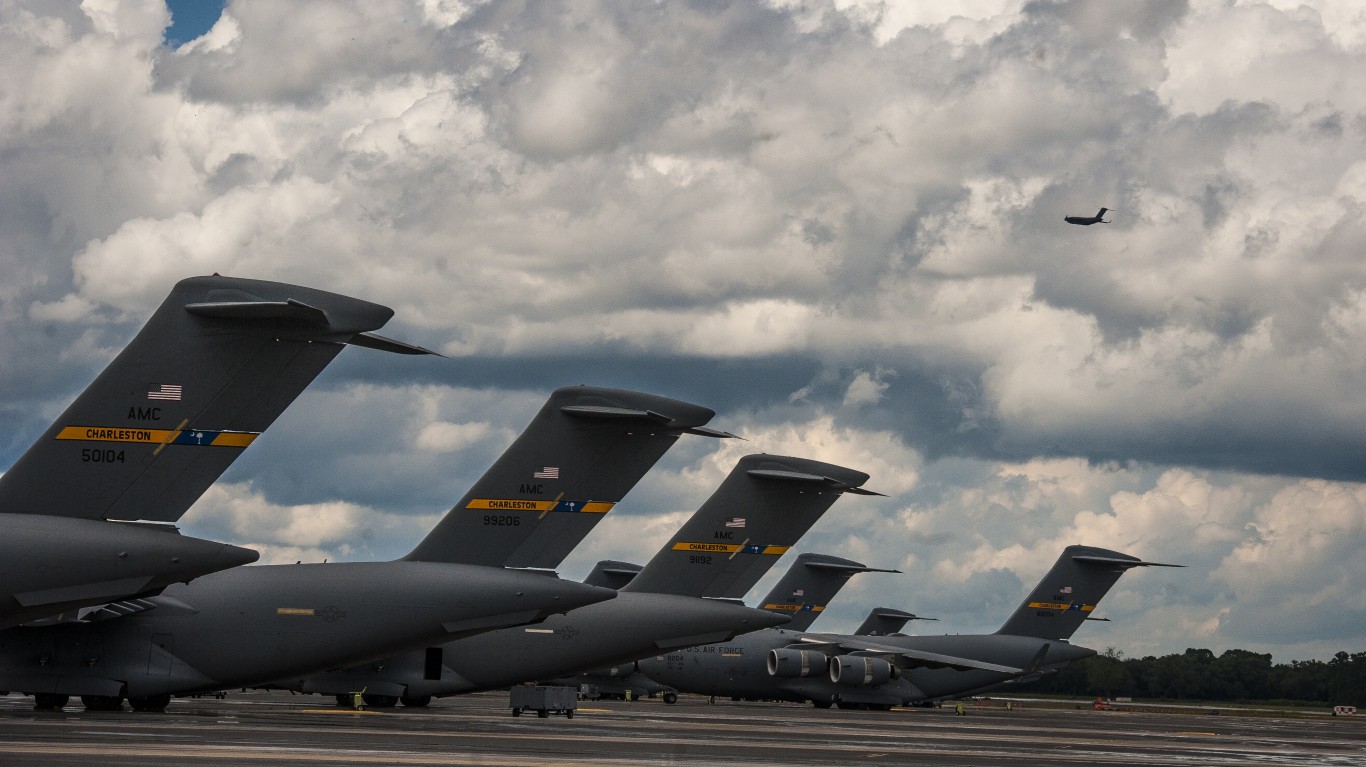
49. Joint Base Charleston
> State: South Carolina
> Service branch: Navy
> Physical size (in acres): 16,729
> Active duty service members: 5,975
Joint Base Charleston provides a variety of services such as harbor security patrol, river dredging, and transportation isolation systems to transport patients with highly contagious diseases such as Ebola.
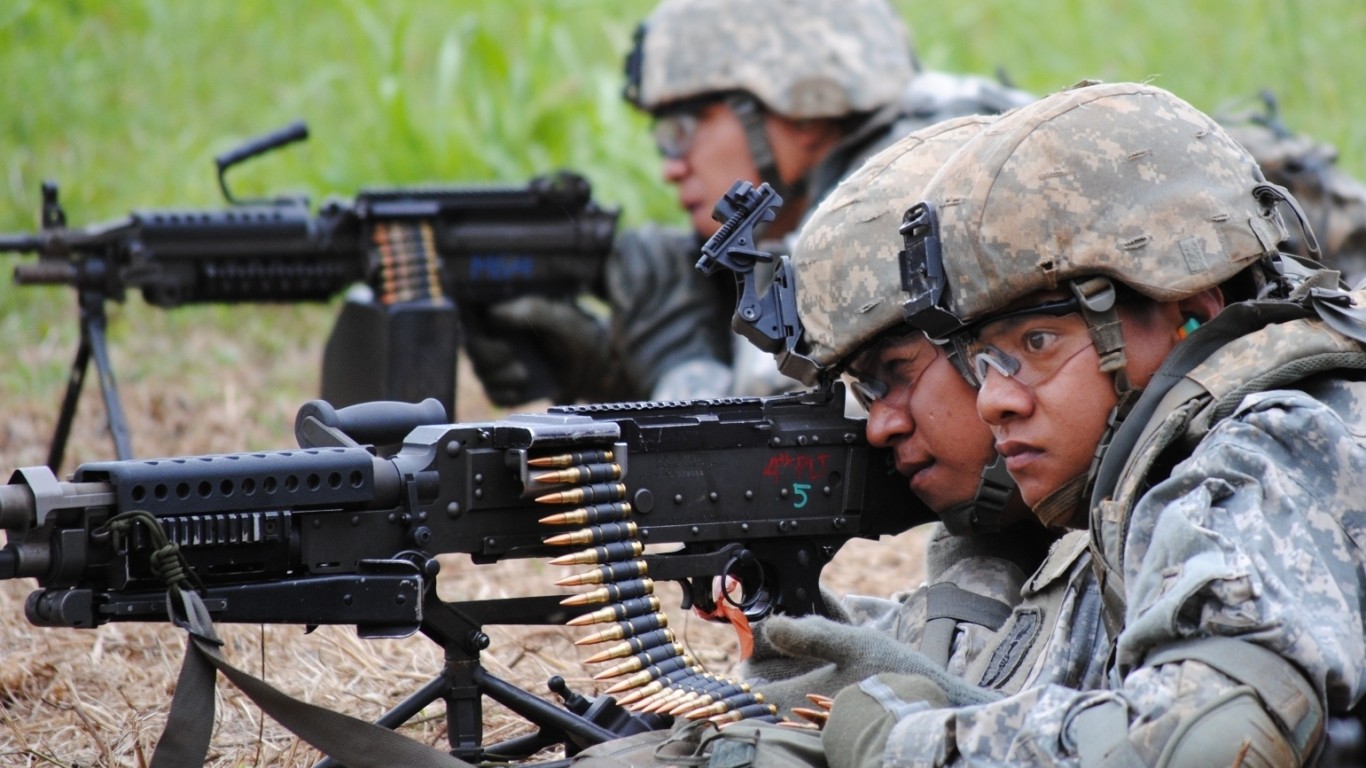
48. Schofield Barracks
> State: Hawaii
> Service branch: Army
> Physical size (in acres): 17,725
> Active duty service members: 16,754
Founded in 1908, Schofield Barracks is home to the 25th Infantry Division.
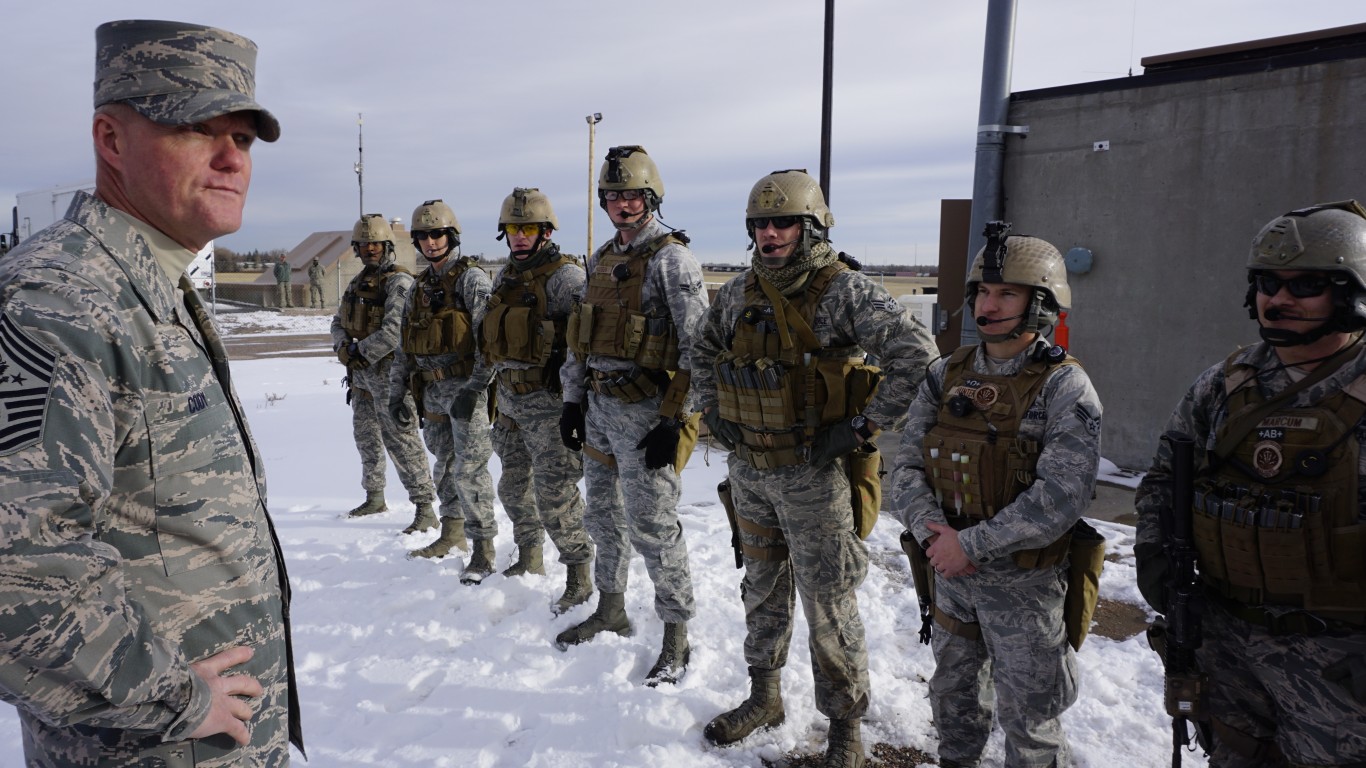
47. Francis E Warren Air Force Base
> State: Wyoming
> Service branch: Air Force
> Physical size (in acres): 18,446
> Active duty service members: 2,954
This facility was named after Wyoming’s first state governor and Civil War hero. It became an Air Force base in 1947.
[in-text-ad-2]
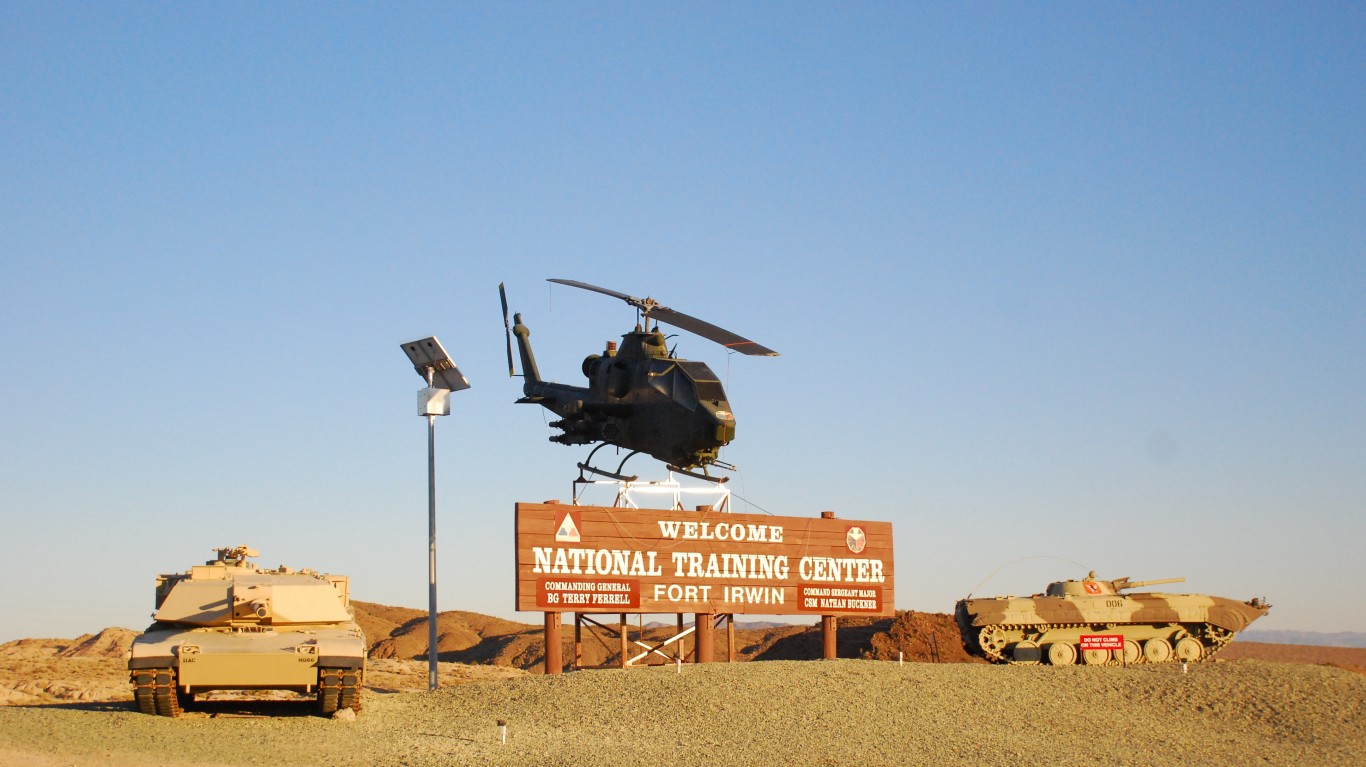
46. Fort Irwin
> State: California
> Service branch: Army
> Physical size (in acres): 22,154
> Active duty service members: 3,960
The stated mission of Fort Irwin is to provide “tough, realistic joint and combined arms training.” It is home to the 11th Armored Cavalry Regiment.
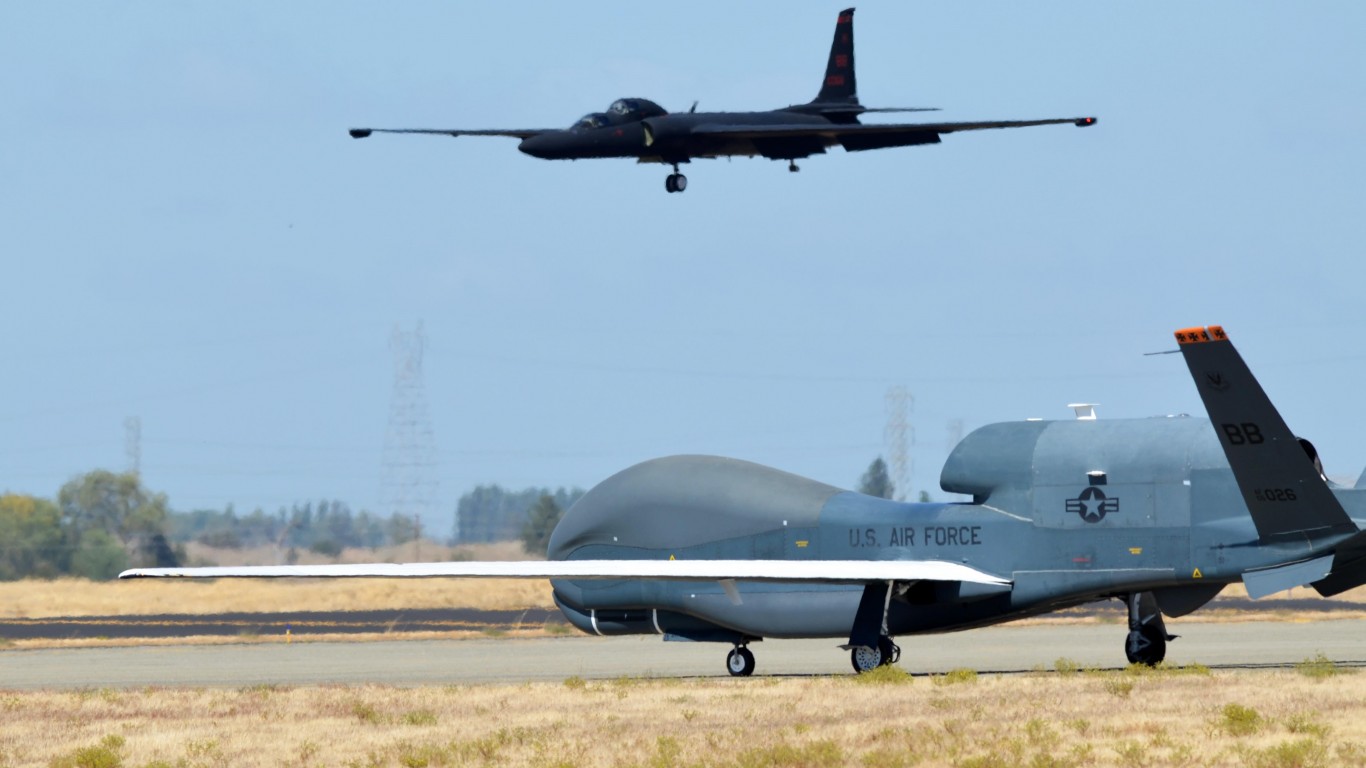
45. Beale Air Force Base
> State: California
> Service branch: Air Force
> Physical size (in acres): 22,451
> Active duty service members: 3,955
Opened in 1942, this facility housed prisoners of war during World War II. Nowadays, Beale’s mission is to provide intelligence, surveillance, and reconnaissance.
[in-text-ad]
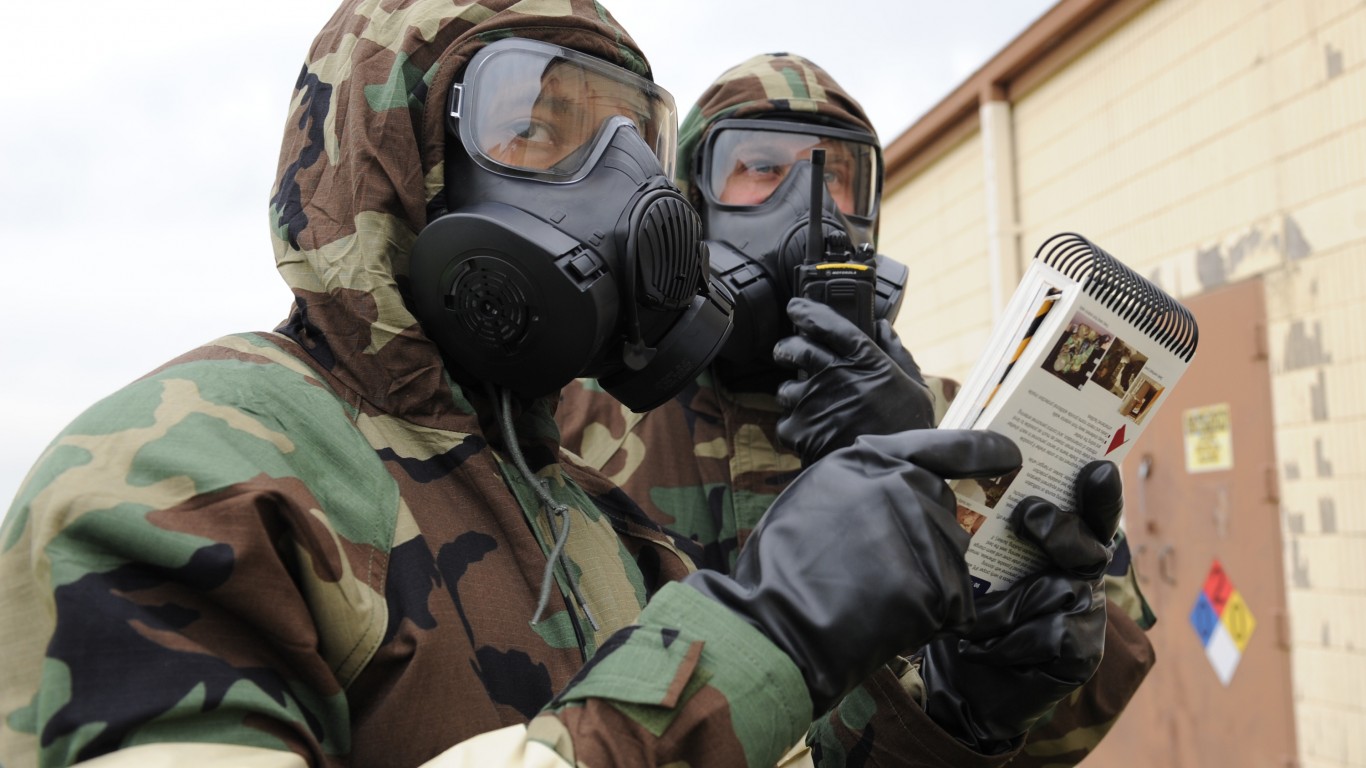
44. Barksdale Air Force Base
> State: Louisiana
> Service branch: Air Force
> Physical size (in acres): 22,504
> Active duty service members: 5,078
Barksdale is home to the 2nd Bomb Wing, which trains all Air Force Global Strike Command and Air Force Reserve B-52 crews.
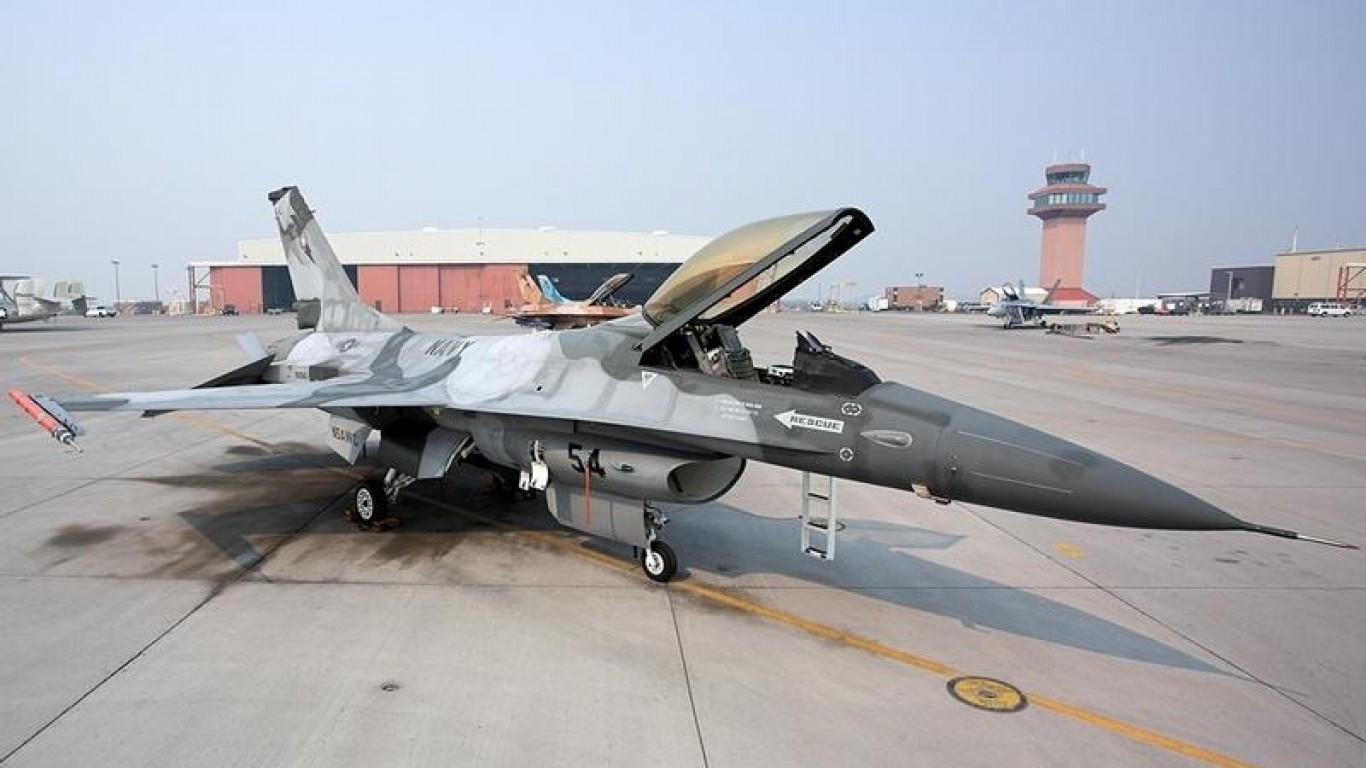
43. Fallon Naval Air Station
> State: Nevada
> Service branch: Navy
> Physical size (in acres): 22,511
> Active duty service members: 841
In Nevada, Naval Air Station Fallon operates an airfield and bombing and electronic warfare ranges. It also provides weapons training for the Navy and Marine aviation units.
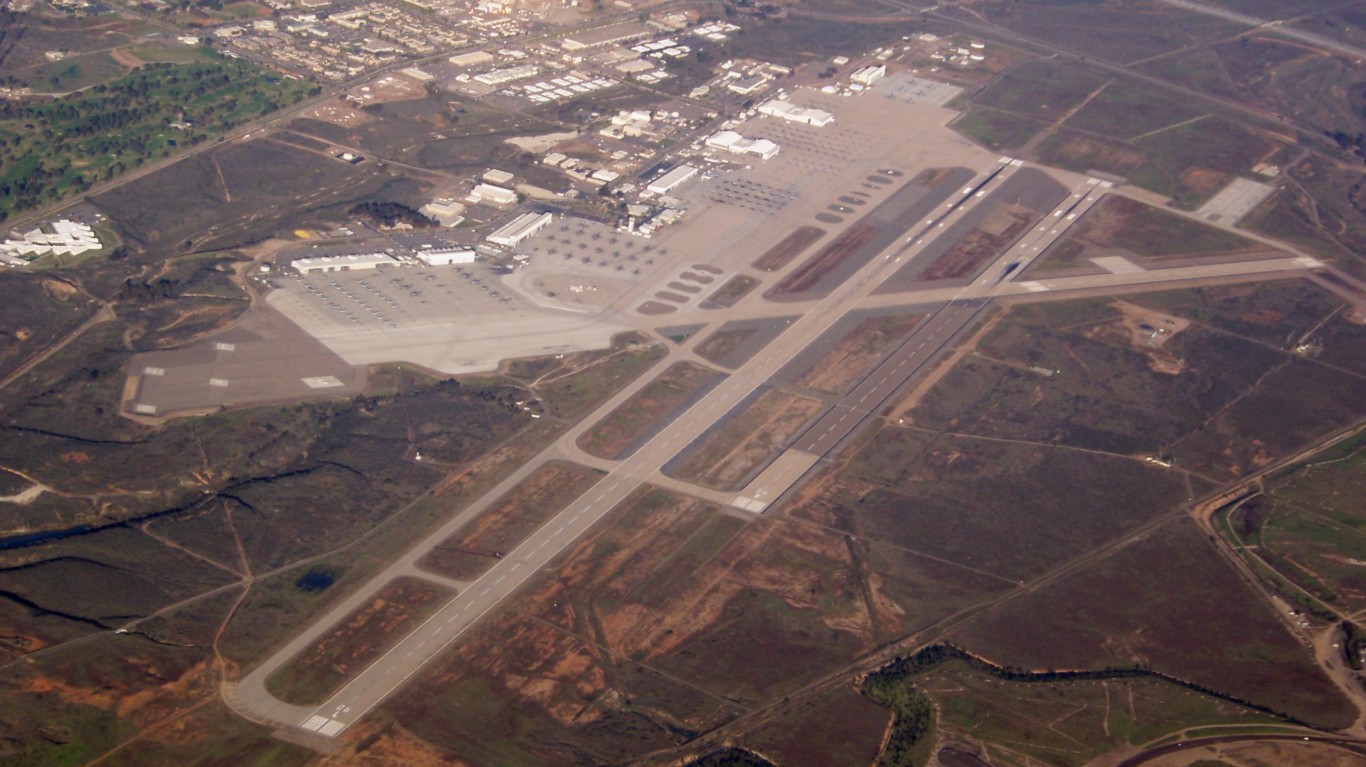
42. Marine Corps Air Station Miramar
> State: California
> Service branch: Marines
> Physical size (in acres): 22,906
> Active duty service members: 7,814
Miramar, also known as “Fightertown USA,” is the base of operations for the 3rd Marine Aircraft Wing, the aviation segment of the 1st Marine Expeditionary Force.
[in-text-ad-2]

41. Eielson Air Force Base
> State: Alaska
> Service branch: Air Force
> Physical size (in acres): 24,926
> Active duty service members: 1,799
Based at Eielson, the 354th Fighter Wing has seen action in every major conflict in which the United States has been involved since 1942, except for the Korean War.
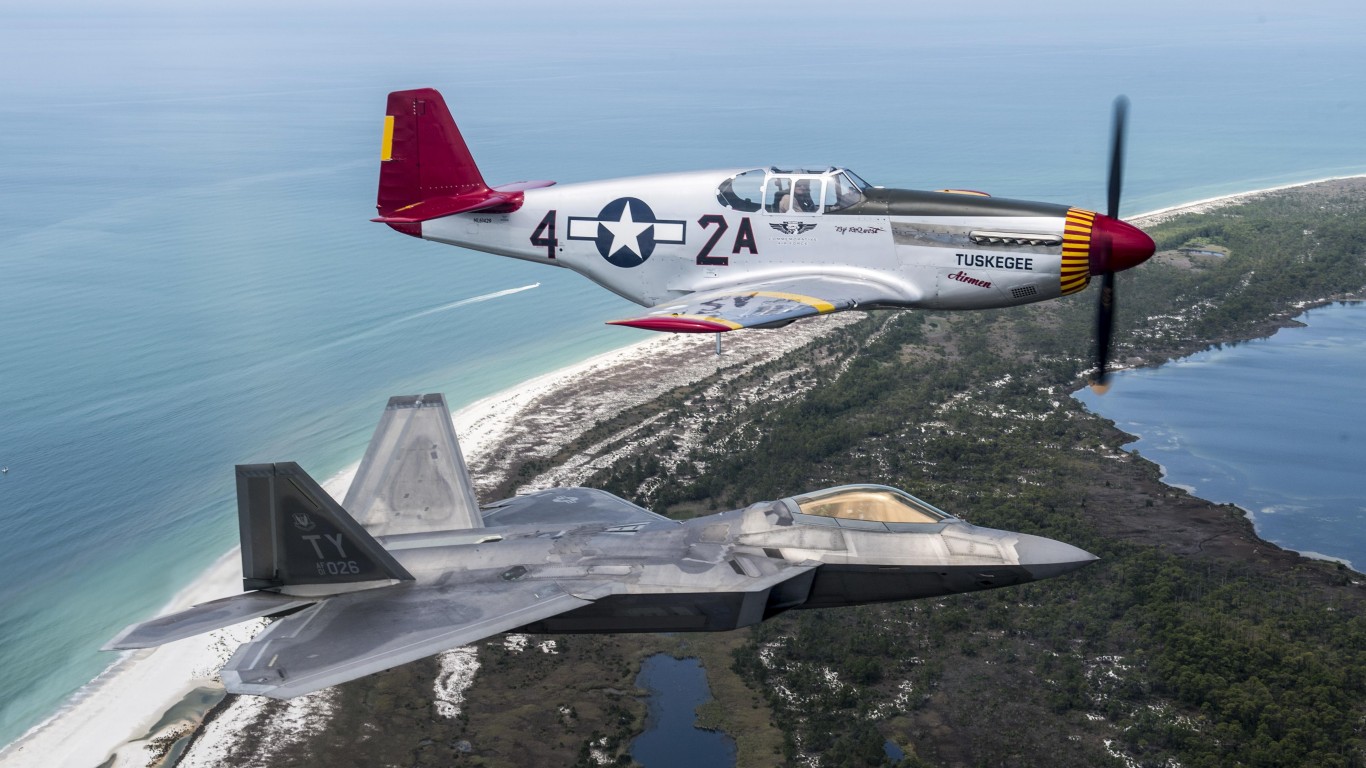
40. Tyndall Air Force Base
> State: Florida
> Service branch: Air Force
> Physical size (in acres): 28,824
> Active duty service members: 3,343
Founded as an aerial gunnery base during World War II, Tyndall is home to the 325th Fighter Wing, whose “primary mission is to train and project unrivaled combat power.”
[in-text-ad]
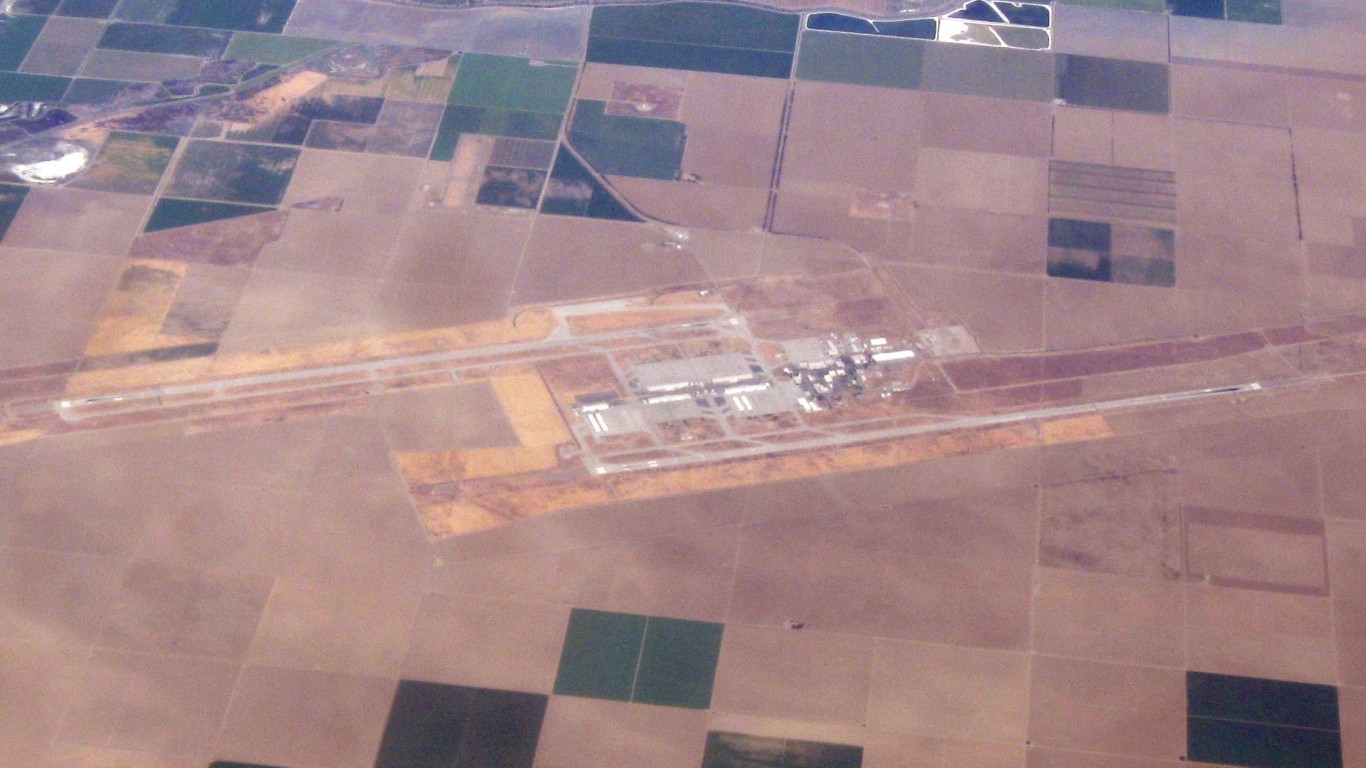
39. Naval Air Station Lemoore
> State: California
> Service branch: Navy
> Physical size (in acres): 29,408
> Active duty service members: 4,127
Lemoore is home to the Pacific Strike Fighter Wing. In 1998, the facility was chosen as the West Coast site for the Navy’s strike-fighter aircraft, the F/A-18E/F Super Hornet.
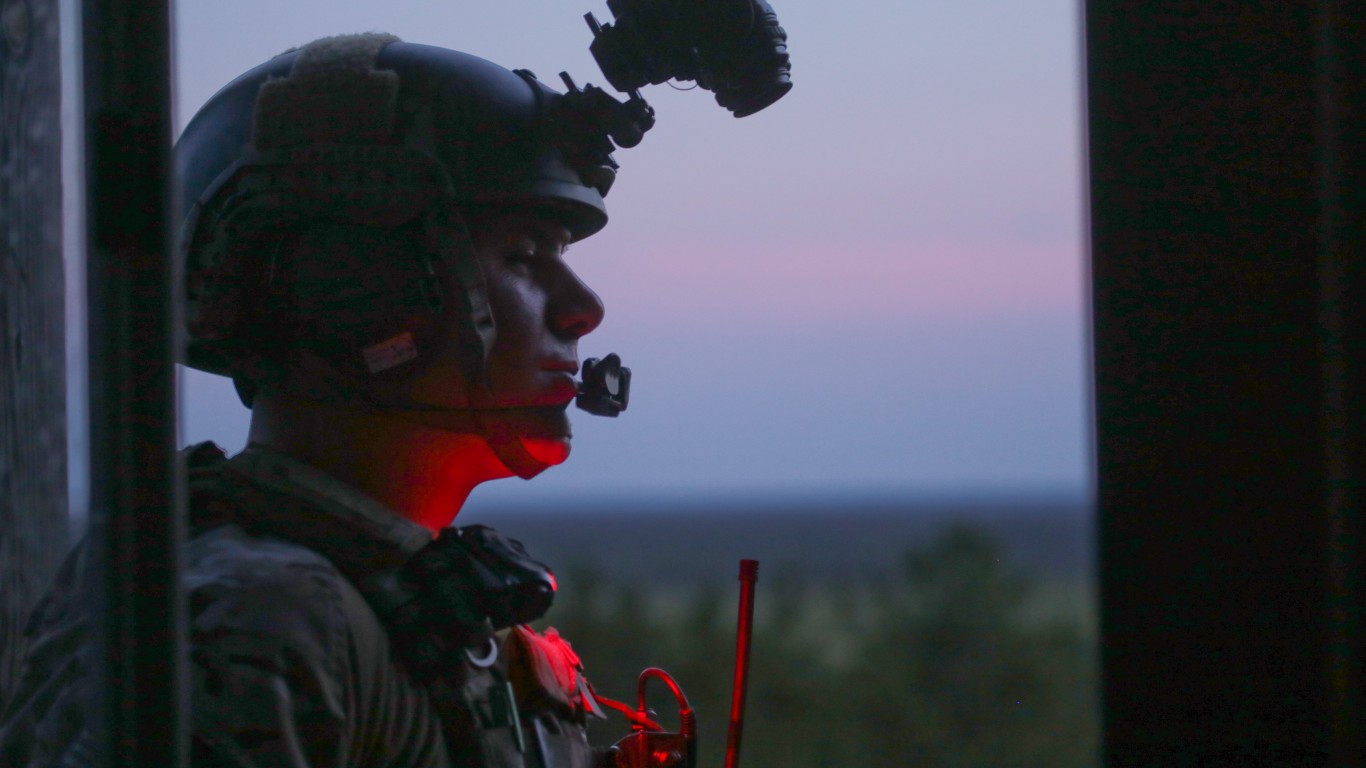
38. Fort Dix
> State: New Jersey
> Service branch: Army
> Physical size (in acres): 30,720
> Active duty service members: 785
Built during World War I, Fort Dix trained three Army divisions during that war. Its mission today is to process military personnel for enlistment or induction.
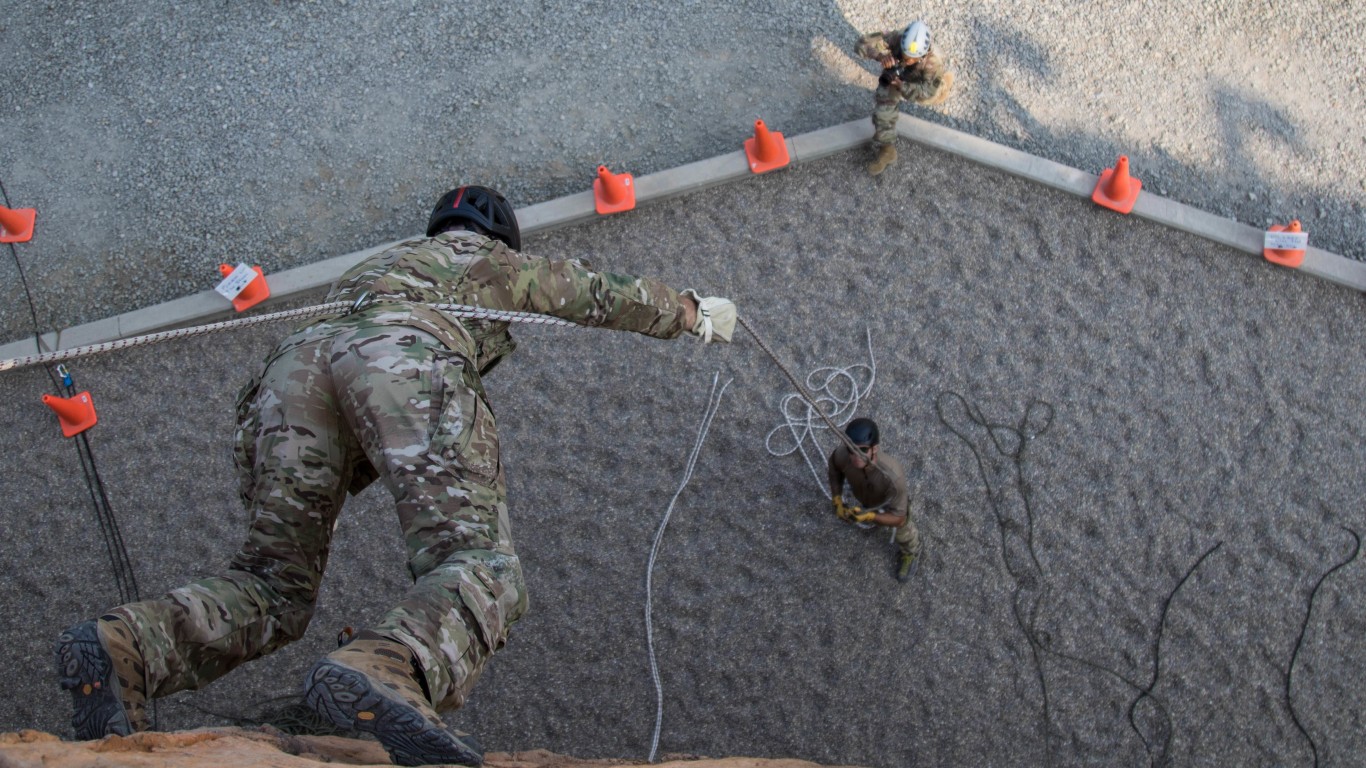
37. Fort Campbell
> State: Kentucky
> Service branch: Army
> Physical size (in acres): 36,739
> Active duty service members: 27,335
This facility straddles the Kentucky-Tennessee border. It is the base of operations for many fighting contingents, including the 101st Airborne Division.
[in-text-ad-2]
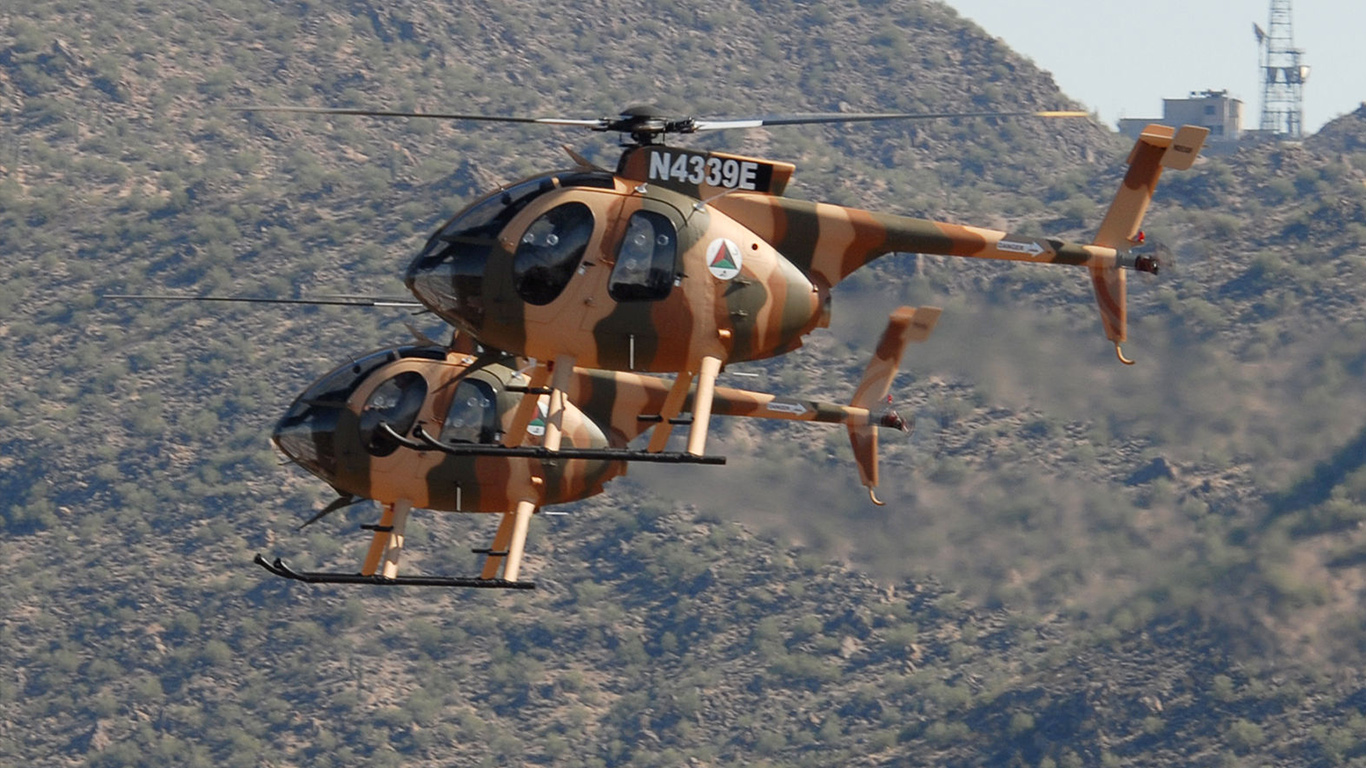
36. Redstone Arsenal
> State: Alabama
> Service branch: Army
> Physical size (in acres): 38,228
> Active duty service members: 660
Redstone, where Wernher von Braun developed the first ballistic missile, is the center of the Army’s aviation and missile command operations.
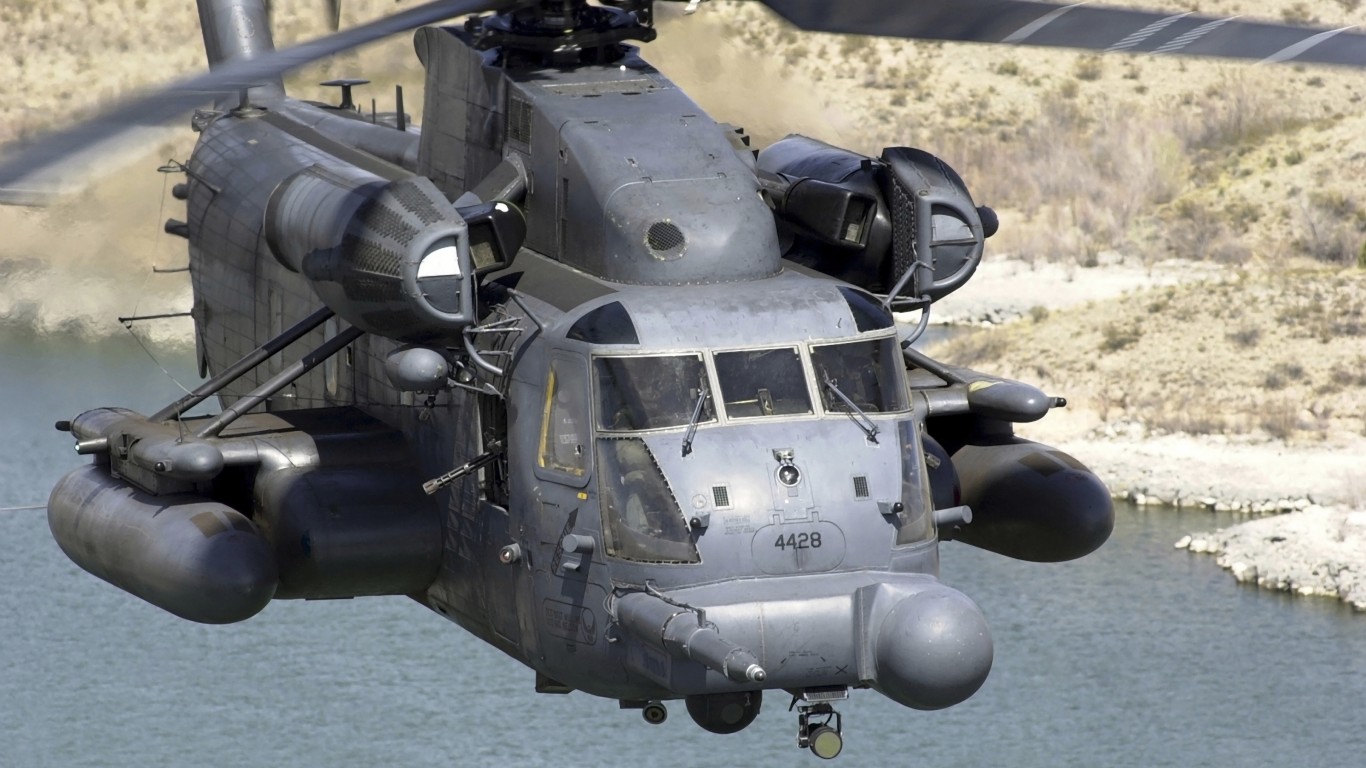
35. Kirtland Air Force Base
> State: New Mexico
> Service branch: Air Force
> Physical size (in acres): 43,842
> Active duty service members: 3,278
Kirtland is the sixth largest installation in the Air Force. It expanded in 1971 when it merged with Manzano and Sandia Base.
[in-text-ad]
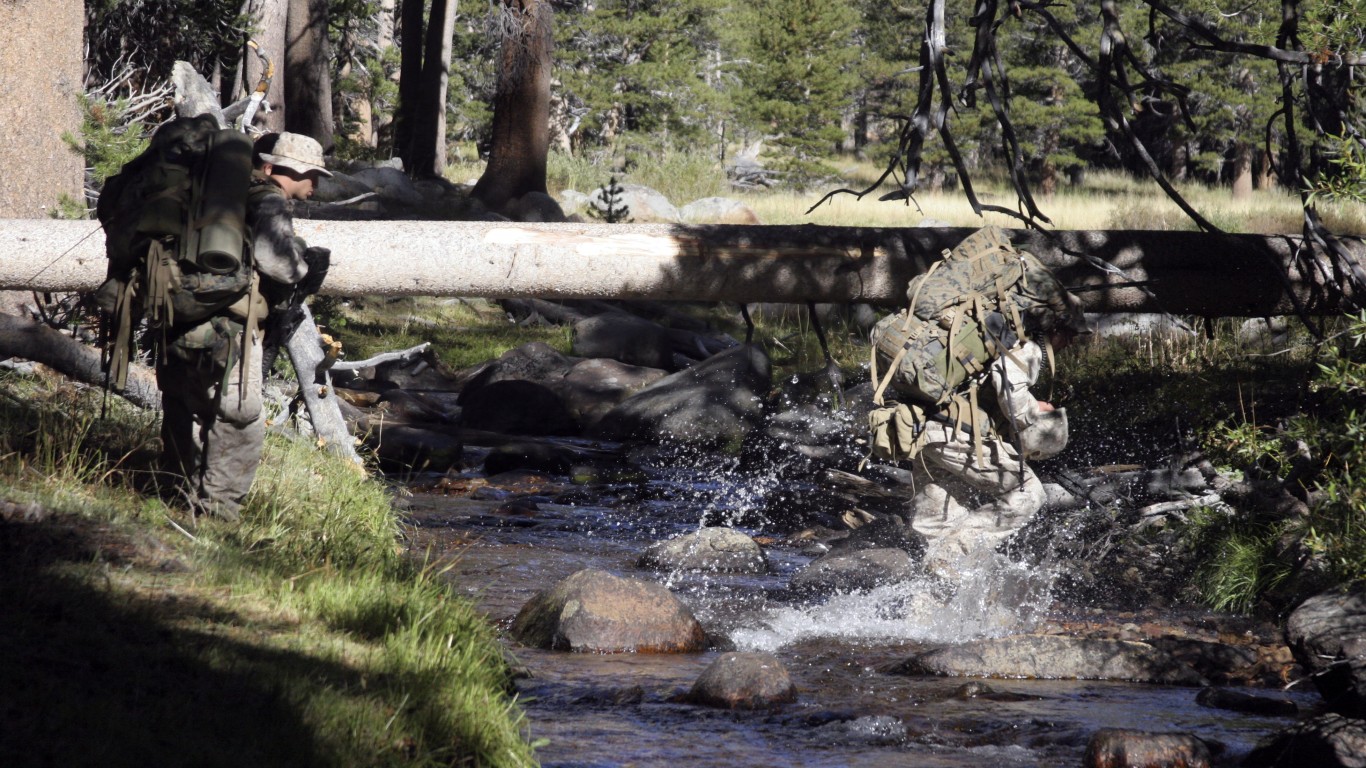
34. Marine Corps Mountain Warfare Training
> State: California
> Service branch: Marines
> Physical size (in acres): 44,452
> Active duty service members: 210
This remote facility was opened in 1951 to train Marines for cold-weather climate in Korea. Its mission today is to develop concepts to enhance the Marines’ ability to operate in mountain and cold-weather environments.
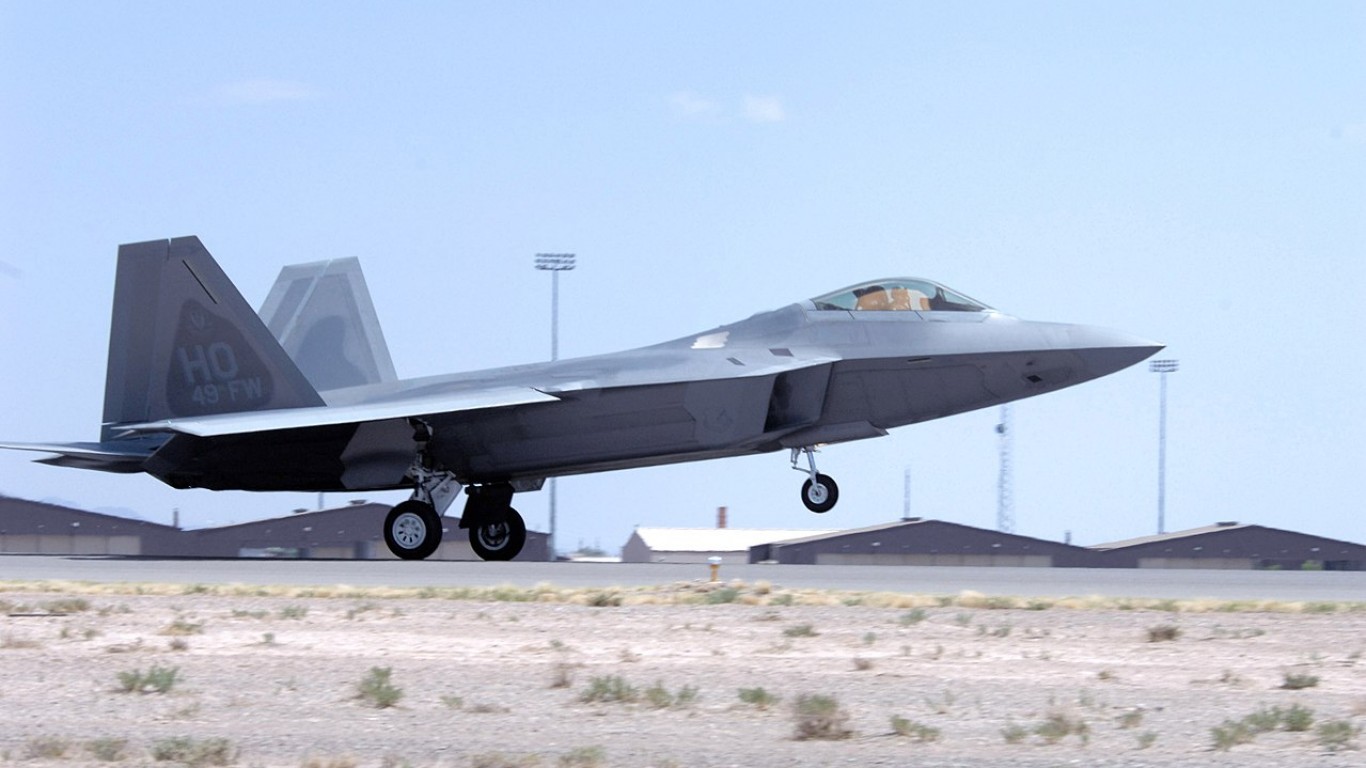
33. Holloman Air Force Base
> State: New Mexico
> Service branch: Air Force
> Physical size (in acres): 51,813
> Active duty service members: 3,725
Holloman, named after a pioneer in rocket research, claims it is home to the world’s longest (50,188 feet) and fastest (10,000 feet per second) test track.
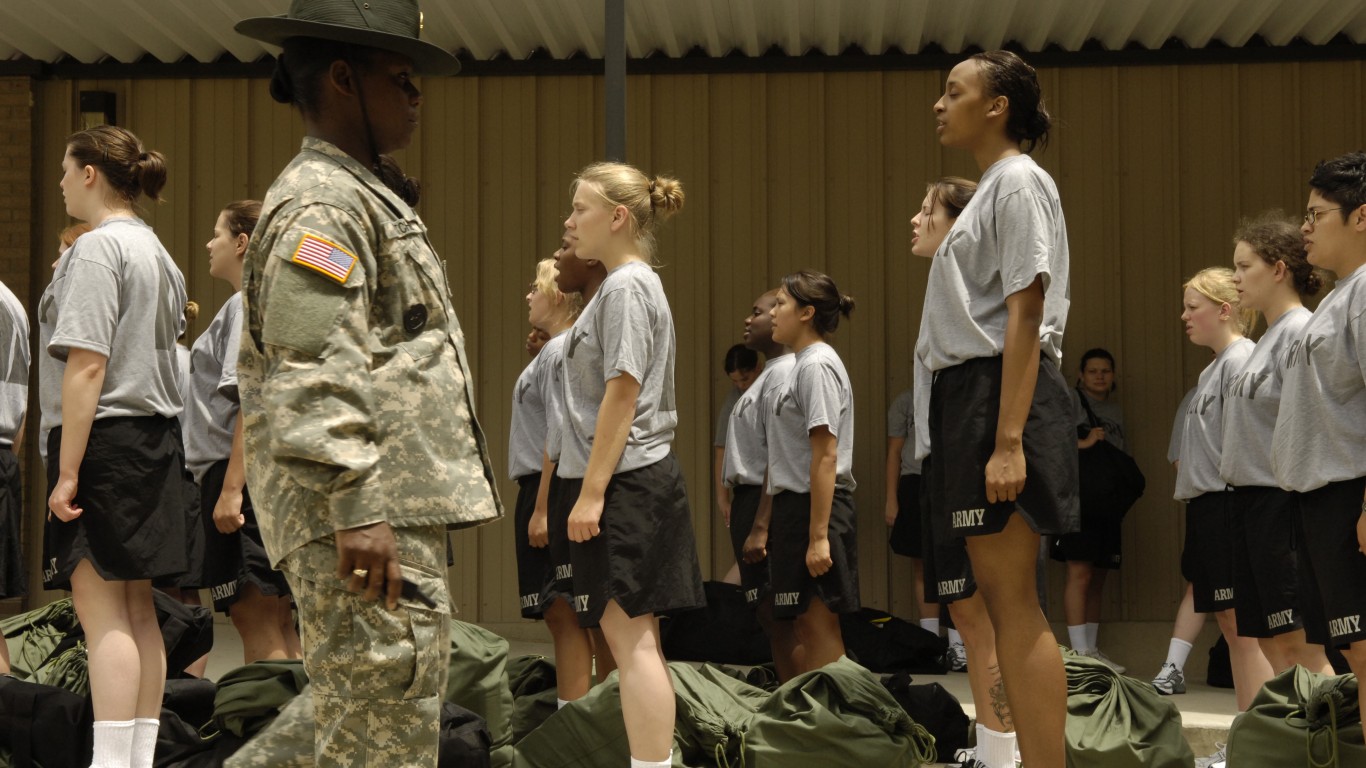
32. Fort Jackson
> State: South Carolina
> Service branch: Army
> Physical size (in acres): 51,900
> Active duty service members: 10,780
Fort Jackson is the nation’s largest basic training site, training more than 48,000 soldiers each year. The facility, opened in 1917, trains 60% of the women enlisting in the Army every year.
[in-text-ad-2]
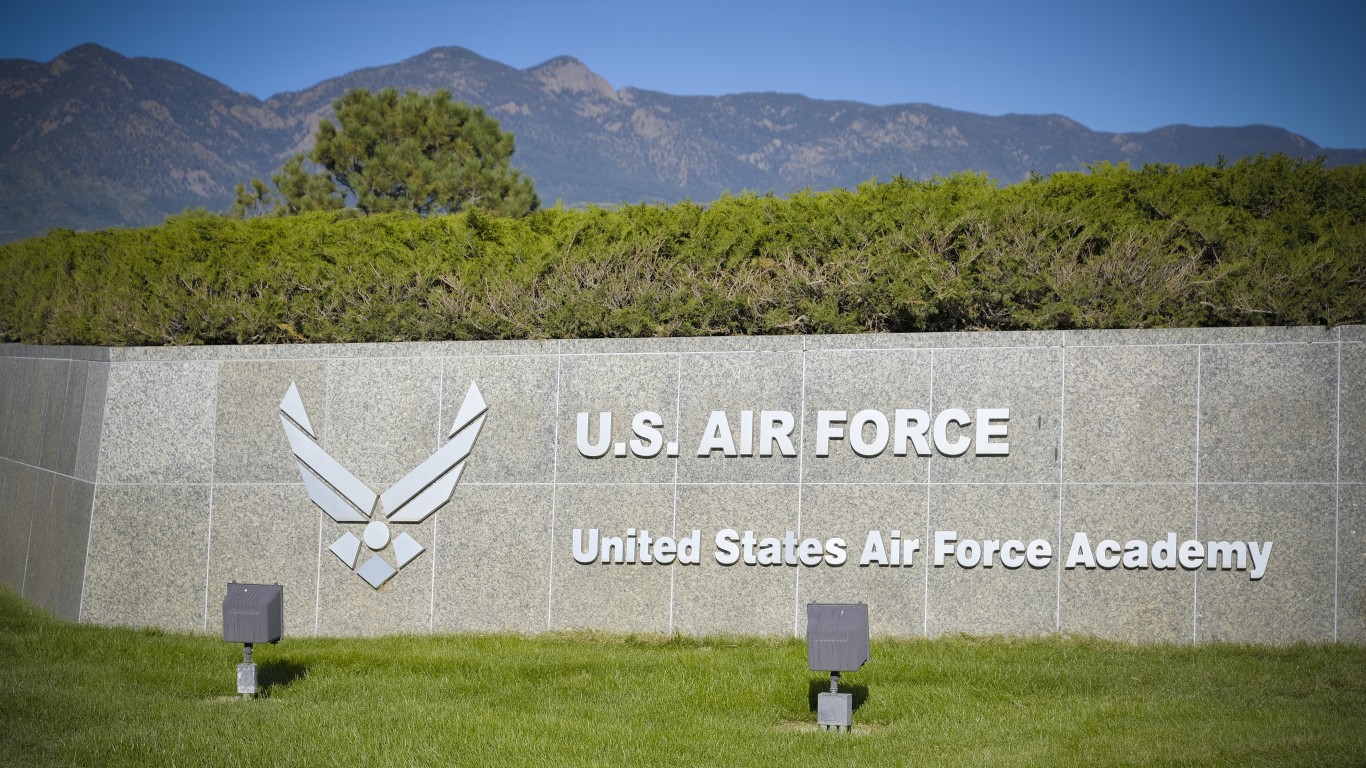
31. Air Force Academy
> State: Colorado
> Service branch: Air Force
> Physical size (in acres): 53,136
> Active duty service members: 2,111
The United States Air Force Academy considers remotely piloted aircraft a critical part of its mission because of the aircraft’s ability to provide air support in combat. RPAs are part of the academy’s curriculum.
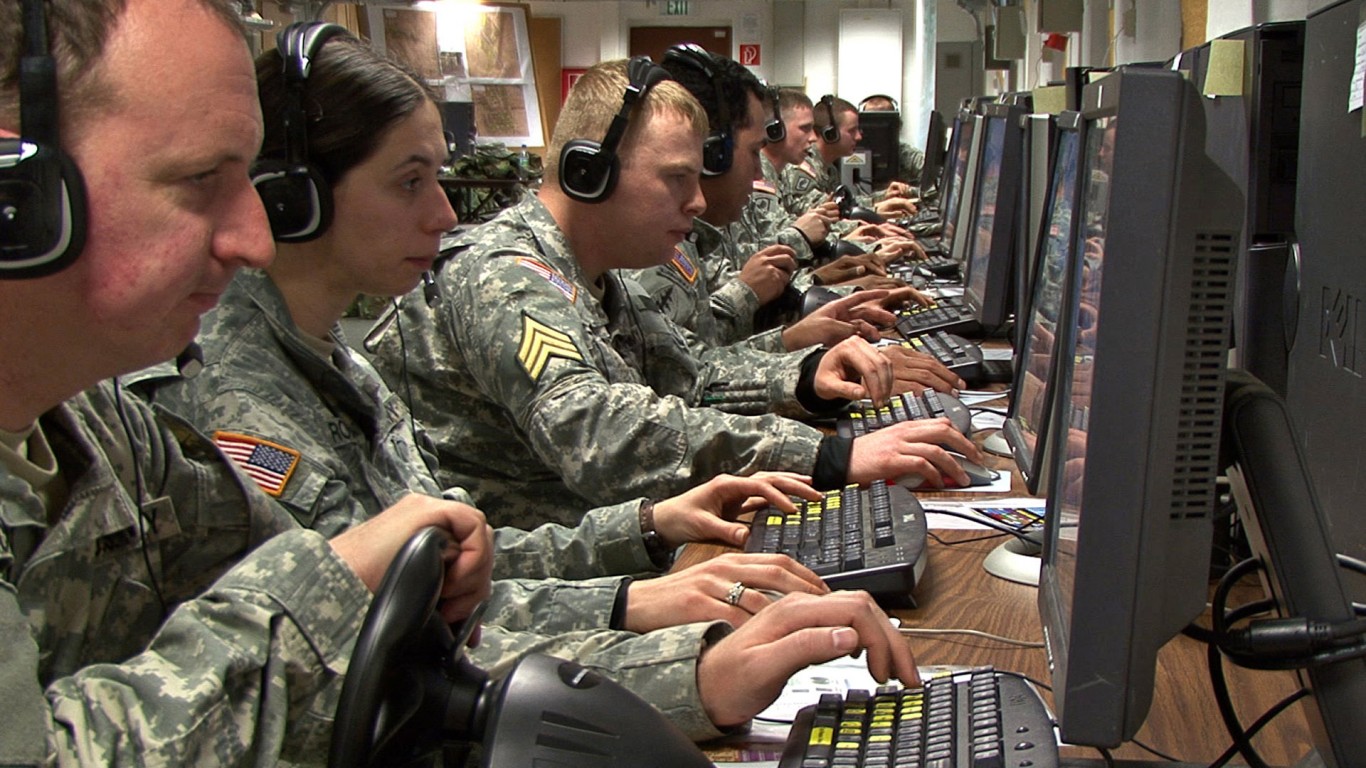
30. Fort Gordon
> State: Georgia
> Service branch: Army
> Physical size (in acres): 55,597
> Active duty service members: 11,373
Fort Gordon is the home of the United States Army Signal Corps and Cyber Center of Excellence. At Fort Gordon, the Army is developing doctrine, training, and solutions related to cyberspace and electromagnetic spectrum.
[in-text-ad]

29. Camp Lejeune Marine Corps Base
> State: North Carolina
> Service branch: Marines
> Physical size (in acres): 57,319
> Active duty service members: 36,005
Camp Lejeune is the base for the II Marine Expeditionary Force, 2nd Marine Division, 2nd Marine Logistics Group, as well as other units.
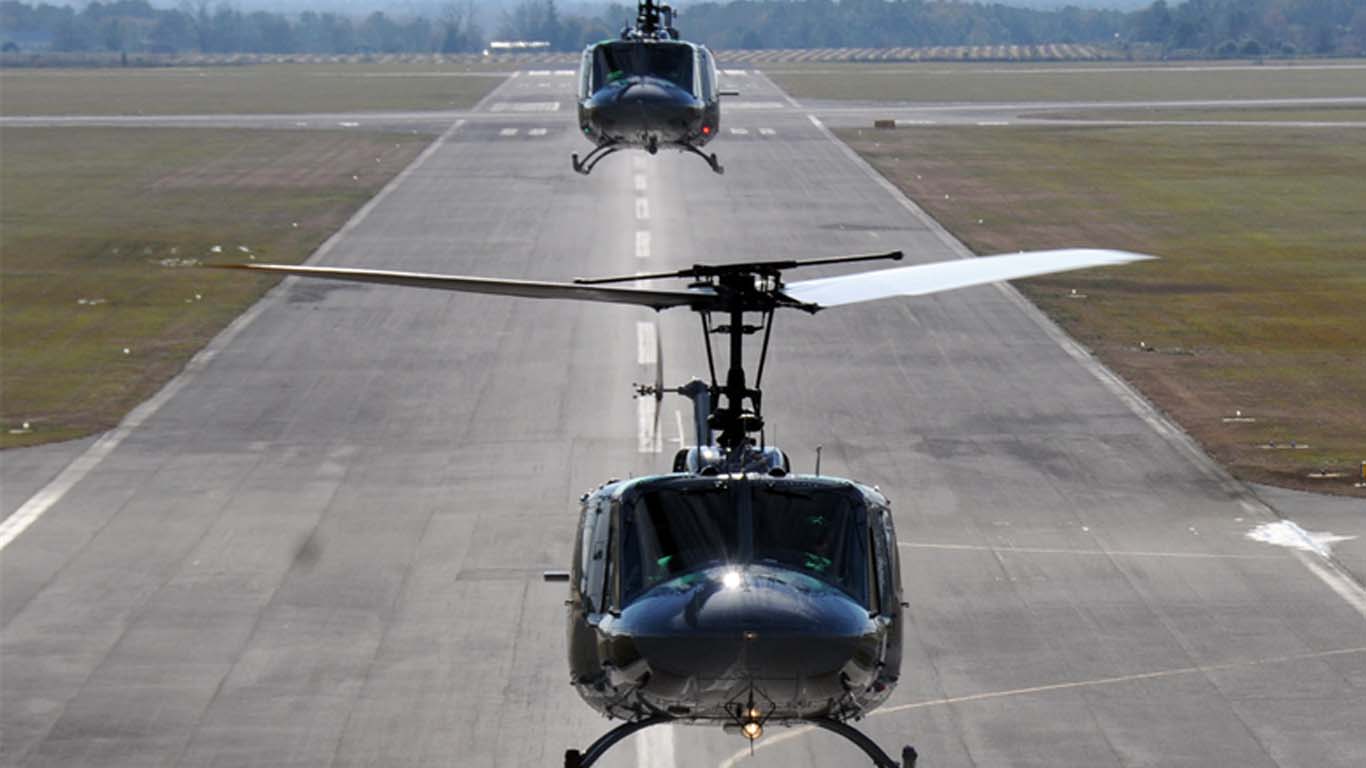
28. Fort Rucker
> State: Alabama
> Service branch: Army
> Physical size (in acres): 58,727
> Active duty service members: 3,572
Fort Rucker is where the aviation branch of the Army originated and the concept of air mobility was advanced.
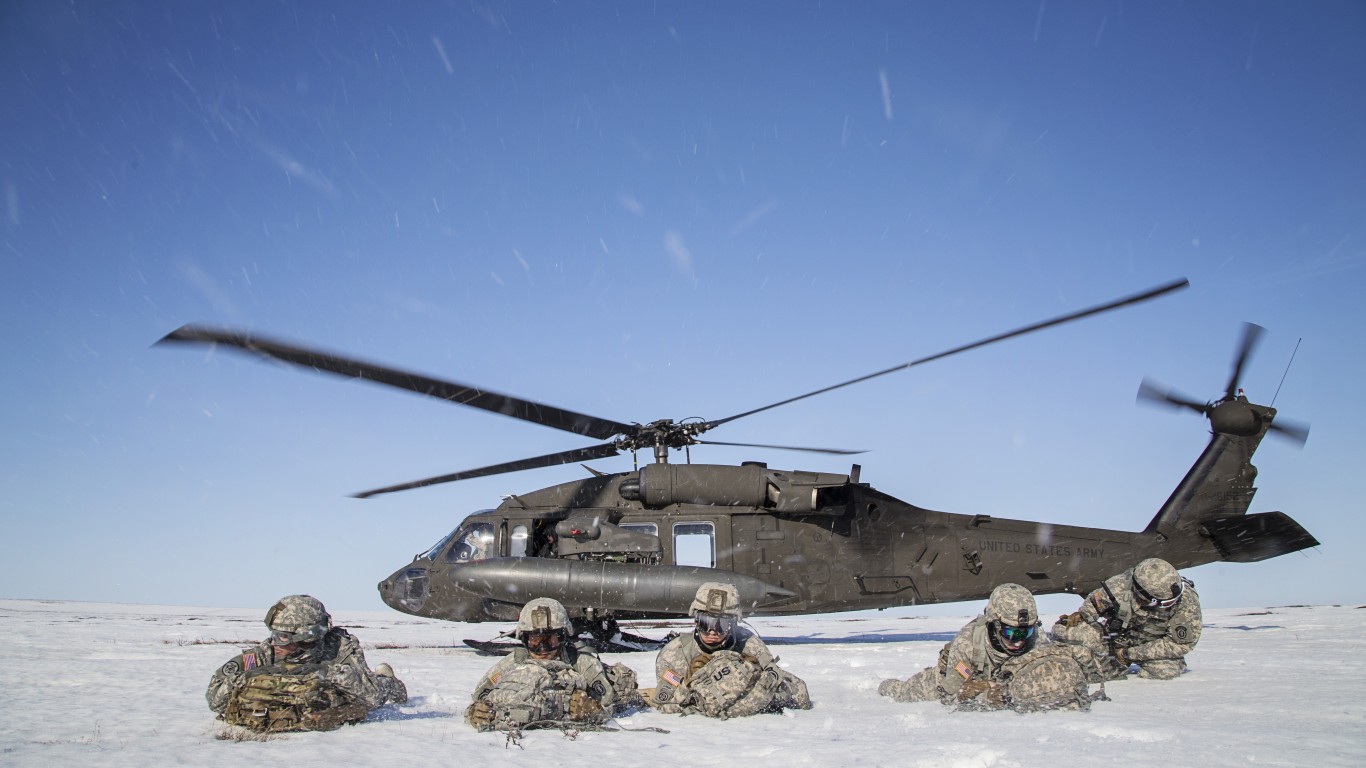
27. Joint Base Elmendorf-Richardson
> State: Alaska
> Service branch: Air Force/Army
> Physical size (in acres): 60,027
> Active duty service members: 4,094
This Alaska facility was created out of the merger of the Air Force’s Elmendorf Air Force Base and the Army’s Fort Richardson in October 2010.
[in-text-ad-2]
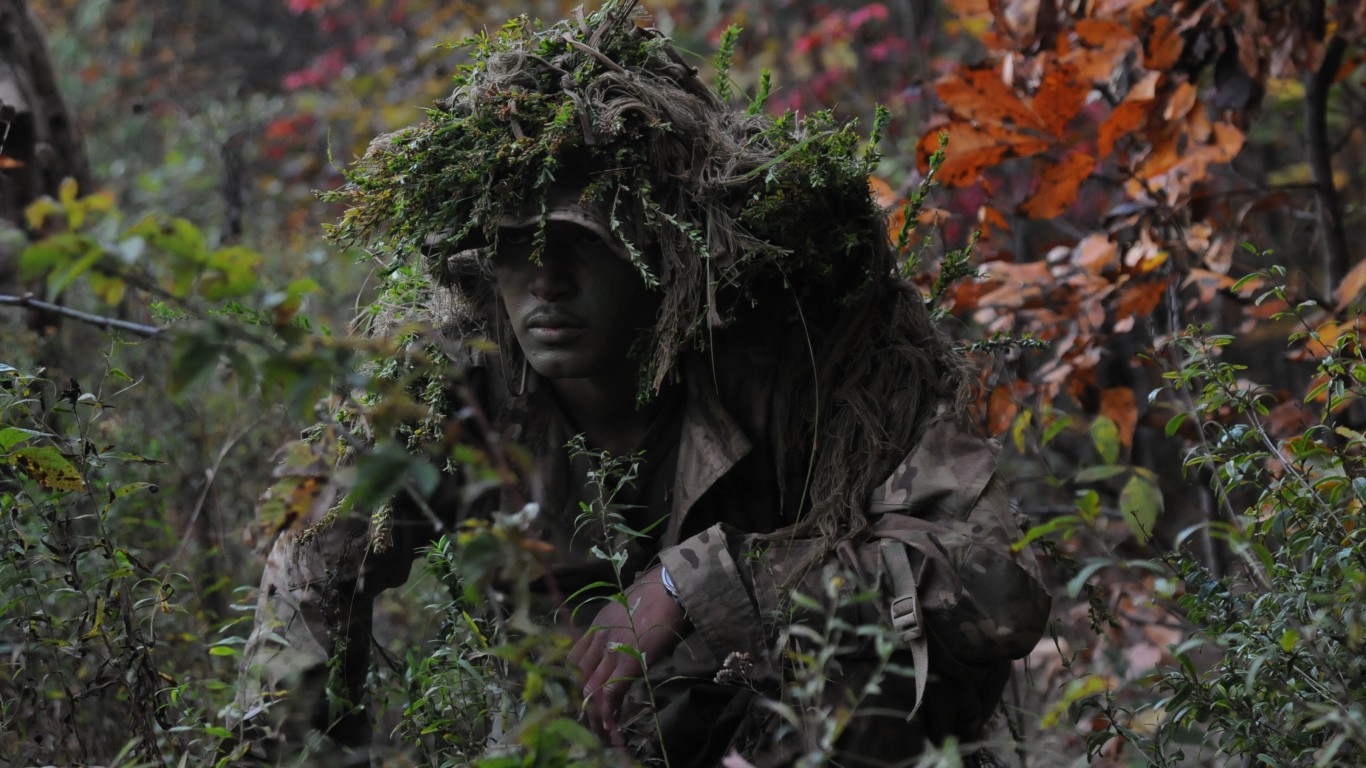
26. Marine Corps Base Quantico
> State: Virginia
> Service branch: Marines
> Physical size (in acres): 60,320
> Active duty service members: 7,643
Quantico is called the “Crossroads of the Marine Corps” because it is where significant tactics such as expeditionary warfare — how troops can be deployed overseas — were developed.
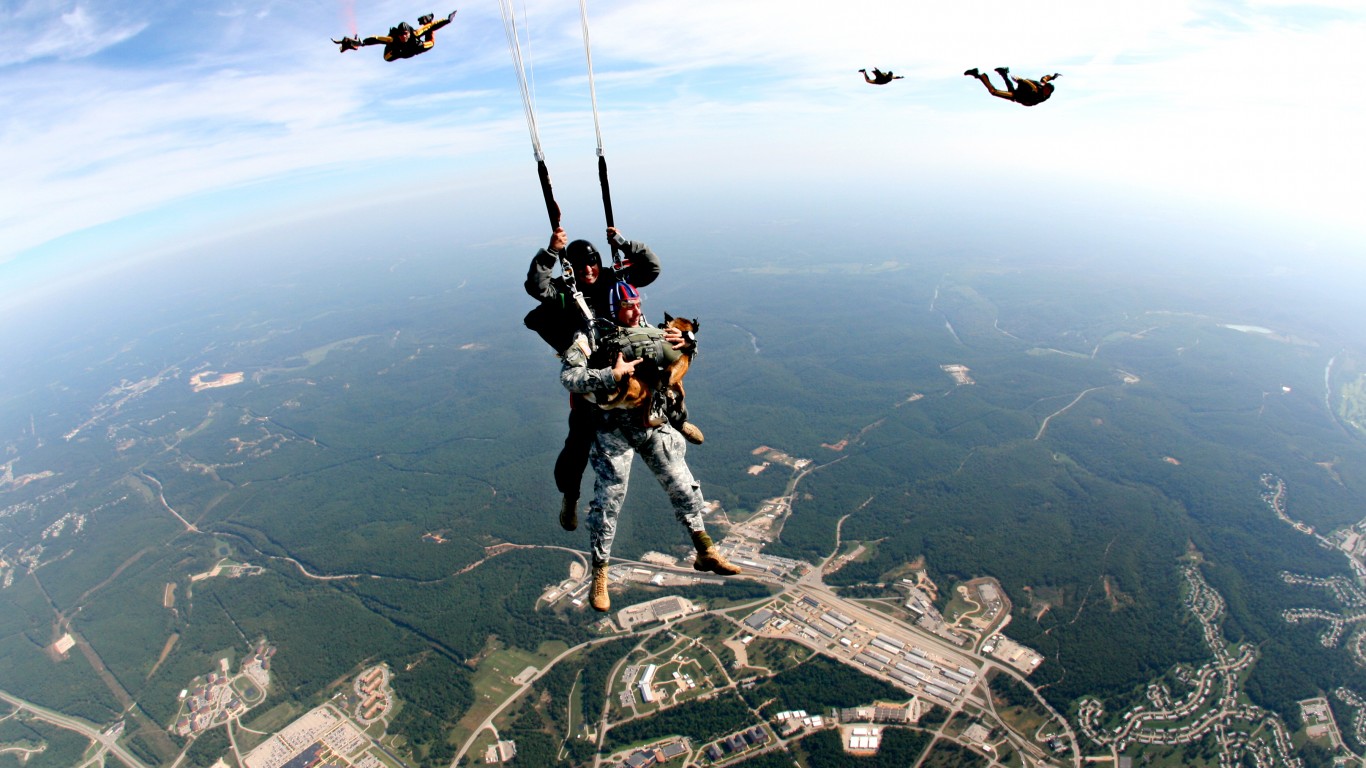
25. Fort Leonard Wood
> State: Missouri
> Service branch: Army
> Physical size (in acres): 67,437
> Active duty service members: 11,093
Fort Leonard Wood is home to three Army schools: U.S. Army Engineer; Chemical, Biological, Radiological, and Nuclear; and Military Police.
[in-text-ad]

24. Aberdeen Proving Ground
> State: Maryland
> Service branch: Army
> Physical size (in acres): 76,793
> Active duty service members: 1,078
Aberdeen Proving Ground opened in 1917 to train military personnel in the use of artillery. All of the army’s tanks and vehicles over the last 50 years have been tested at the facility.
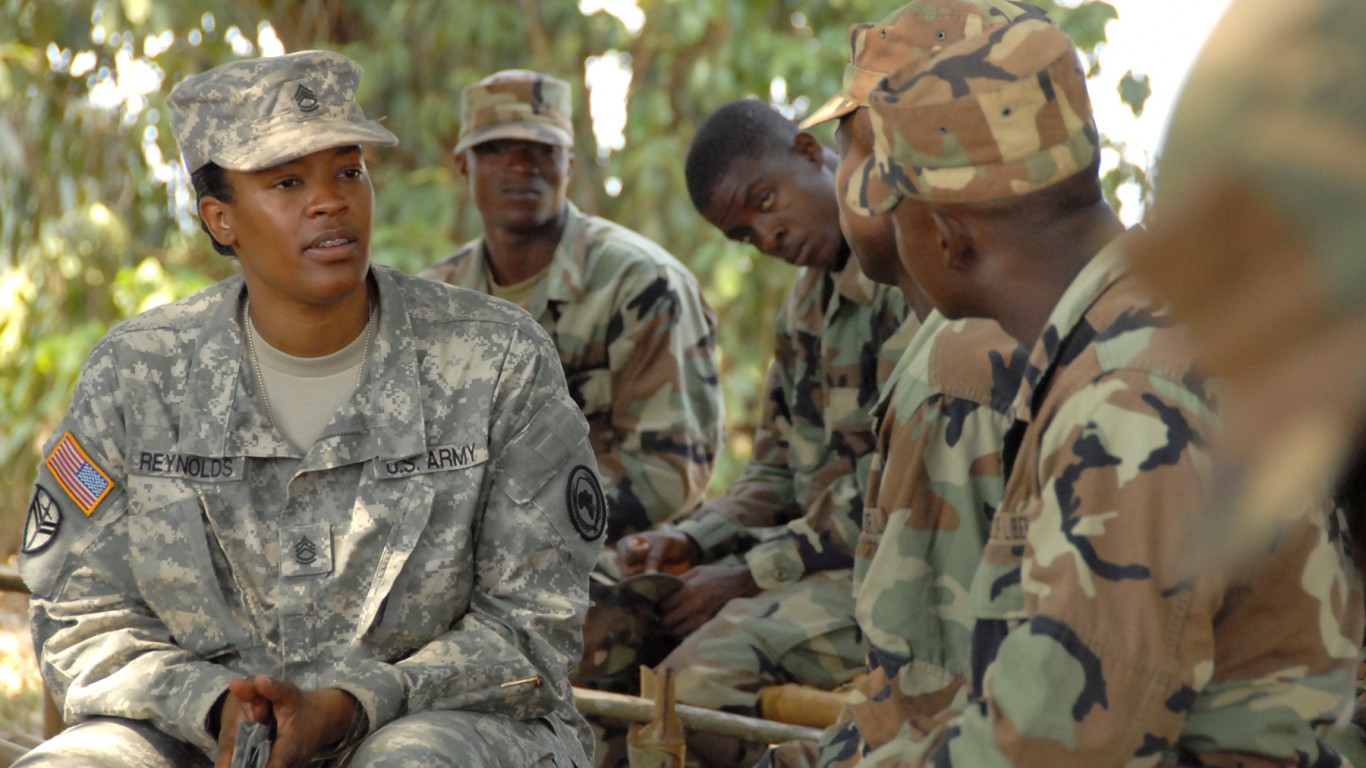
23. Fort Sill
> State: Oklahoma
> Service branch: Army
> Physical size (in acres): 93,829
> Active duty service members: 11,766
Another basic training base, Fort Sill instructs soldiers in the use of artillery. In July, Fort Sill hosted a four-day, basic training exercise intended to be more rigorous and designed to make soldiers more mobile in combat.
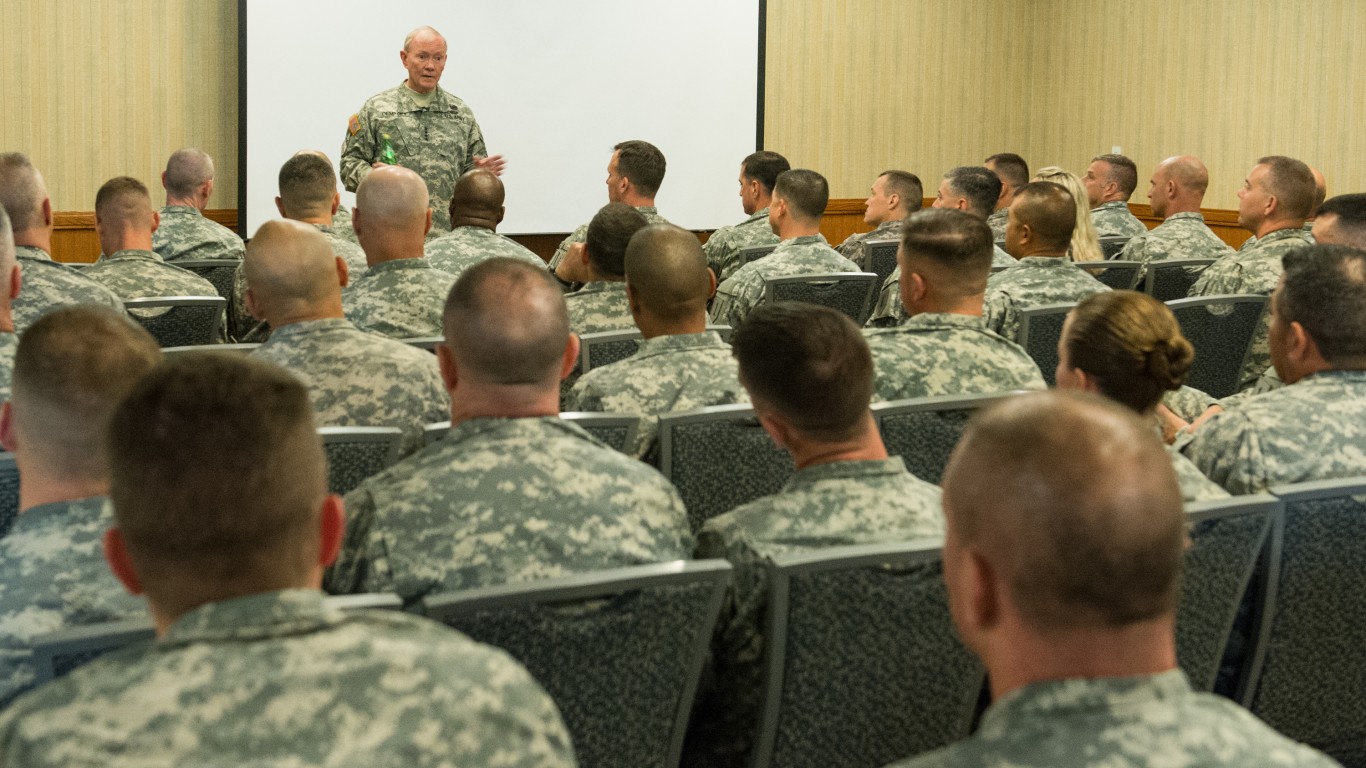
22. Fort Riley
> State: Kansas
> Service branch: Army
> Physical size (in acres): 97,112
> Active duty service members: 15,865
Fort Riley is the home of “The Big Red One,” also known as the 1st Infantry Division, whose mission is to “build and maintain combat ready forces” and deploy when ordered. Fort Riley was a mobilization center for units sent to fight the war on terrorism.
[in-text-ad-2]
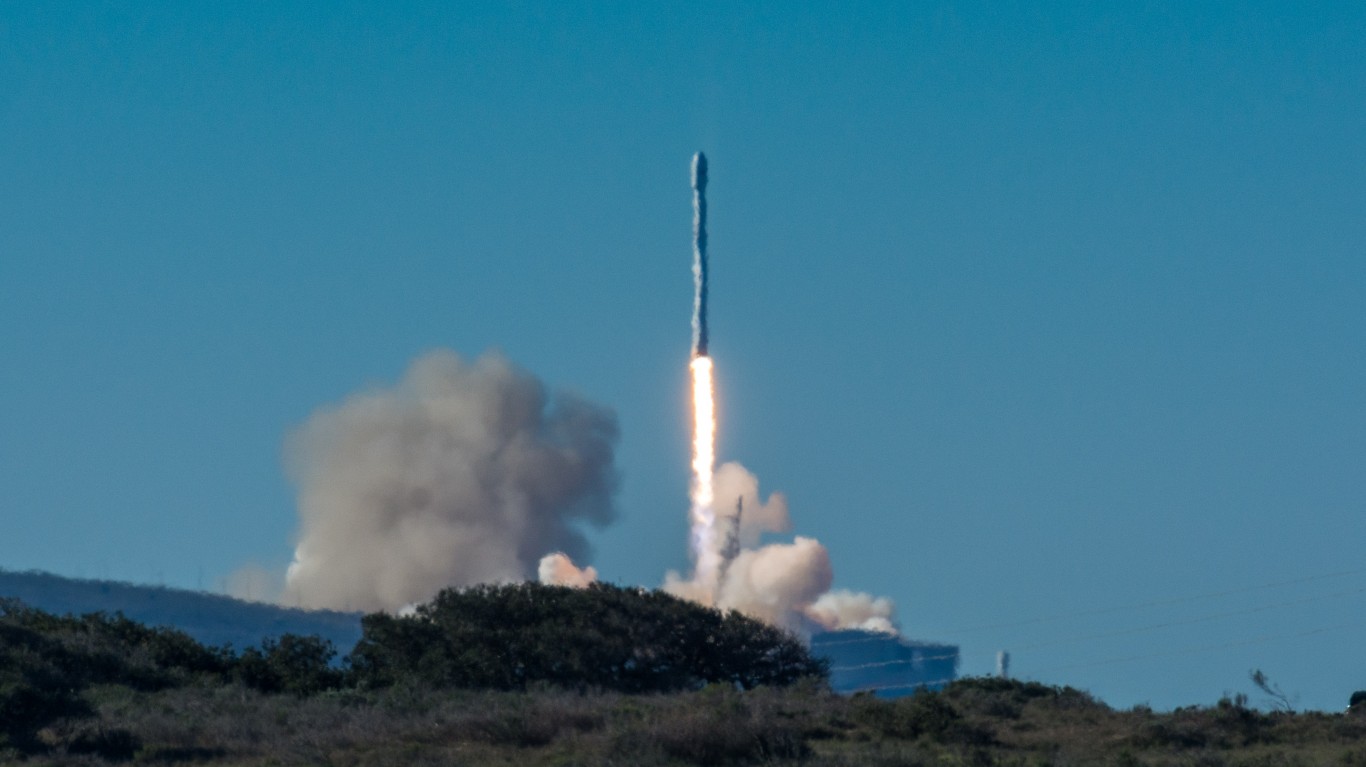
21. Vandenberg Air Force Base
> State: California
> Service branch: Air Force
> Physical size (in acres): 118,312
> Active duty service members: 2,459
Vandenberg Air Force Base, located about 150 miles northwest of Los Angeles, launches military, unmanned and commercial satellites into polar orbit, and also tests intercontinental ballistic missiles.
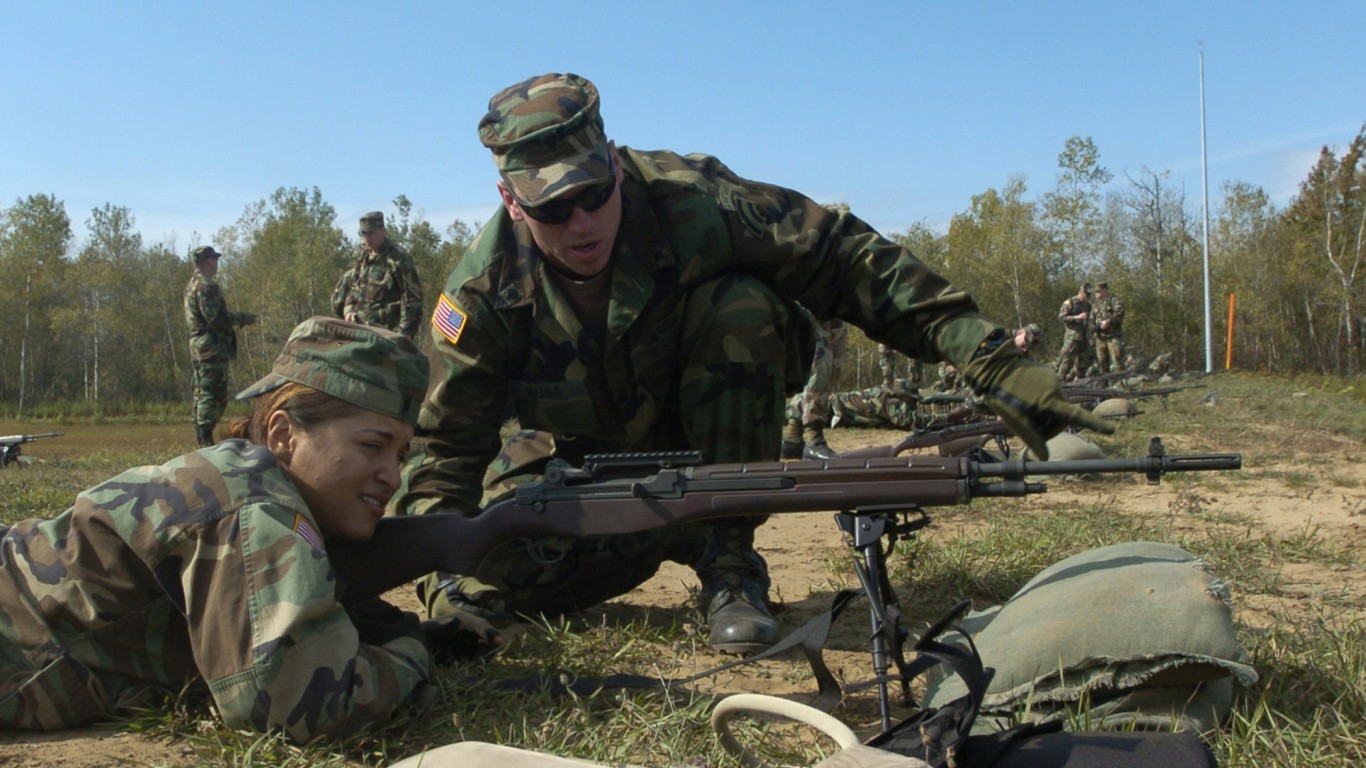
20. Fort Drum
> State: New York
> Service branch: Army
> Physical size (in acres): 124,765
> Active duty service members: 15,118
Fort Drum is one of the largest military facilities in the Northeast and is home to the 10th Mountain Division, a light infantry unit that specializes in fighting in difficult terrain and weather conditions.
[in-text-ad]
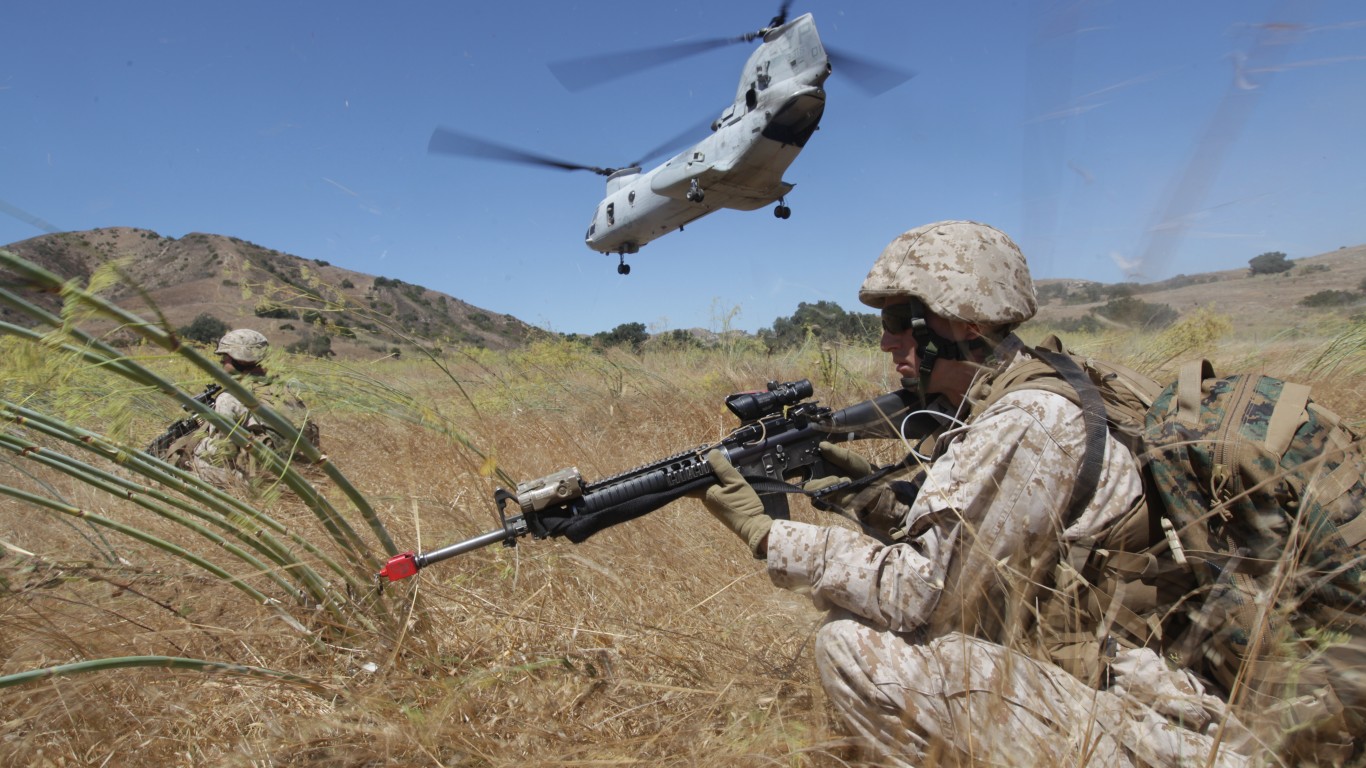
19. Camp Pendleton
> State: California
> Service branch: Marines
> Physical size (in acres): 126,749
> Active duty service members: 39,360
Camp Pendleton is the largest Marine Corps expeditionary training facility on the West Coast. The Marines use coastal and mountain terrain to maintain combat readiness.
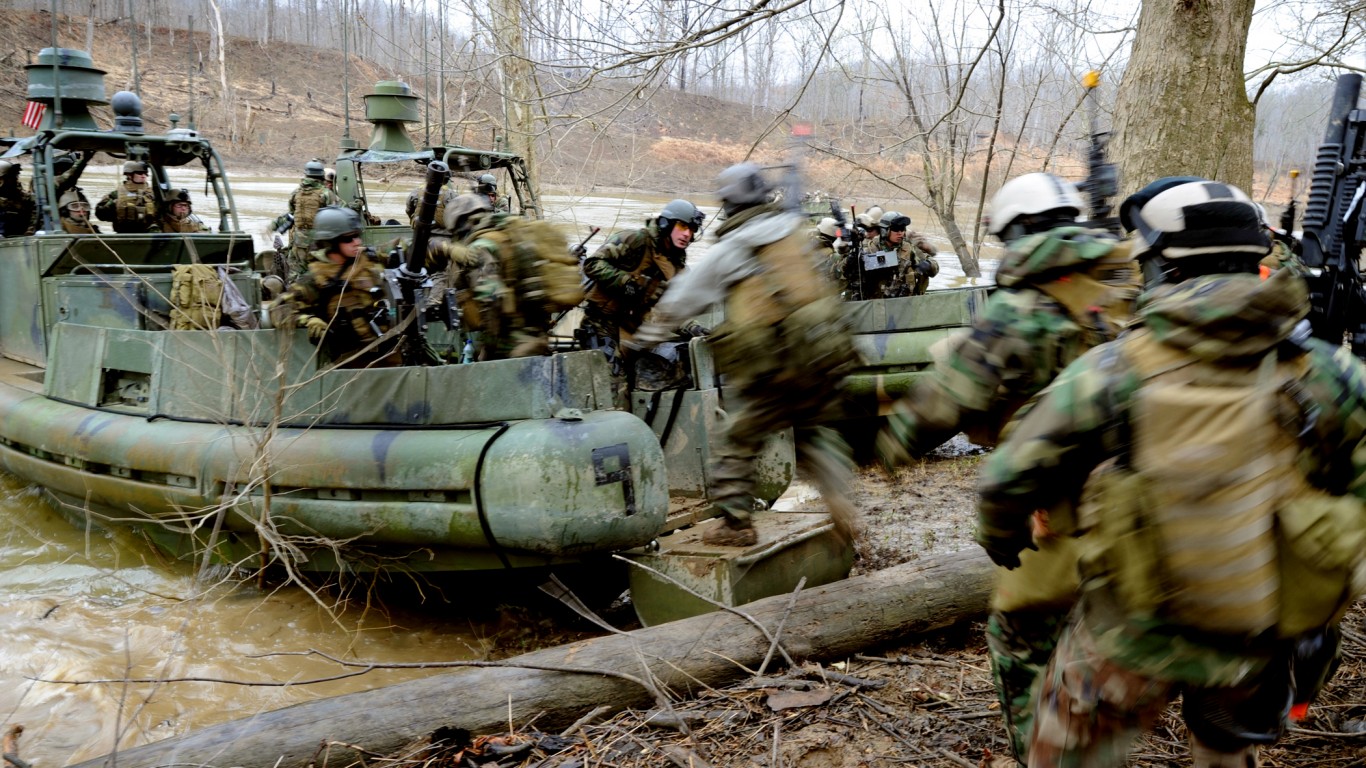
18. Fort Knox
> State: Kentucky
> Service branch: Army
> Physical size (in acres): 127,930
> Active duty service members: 4,772
At Fort Knox, the Army developed a battle doctrine that emphasized utilization of new weapons and prompted the Army to take a more offensive role in Central Europe in the 1980s. The doctrine was employed successfully during the Gulf War.
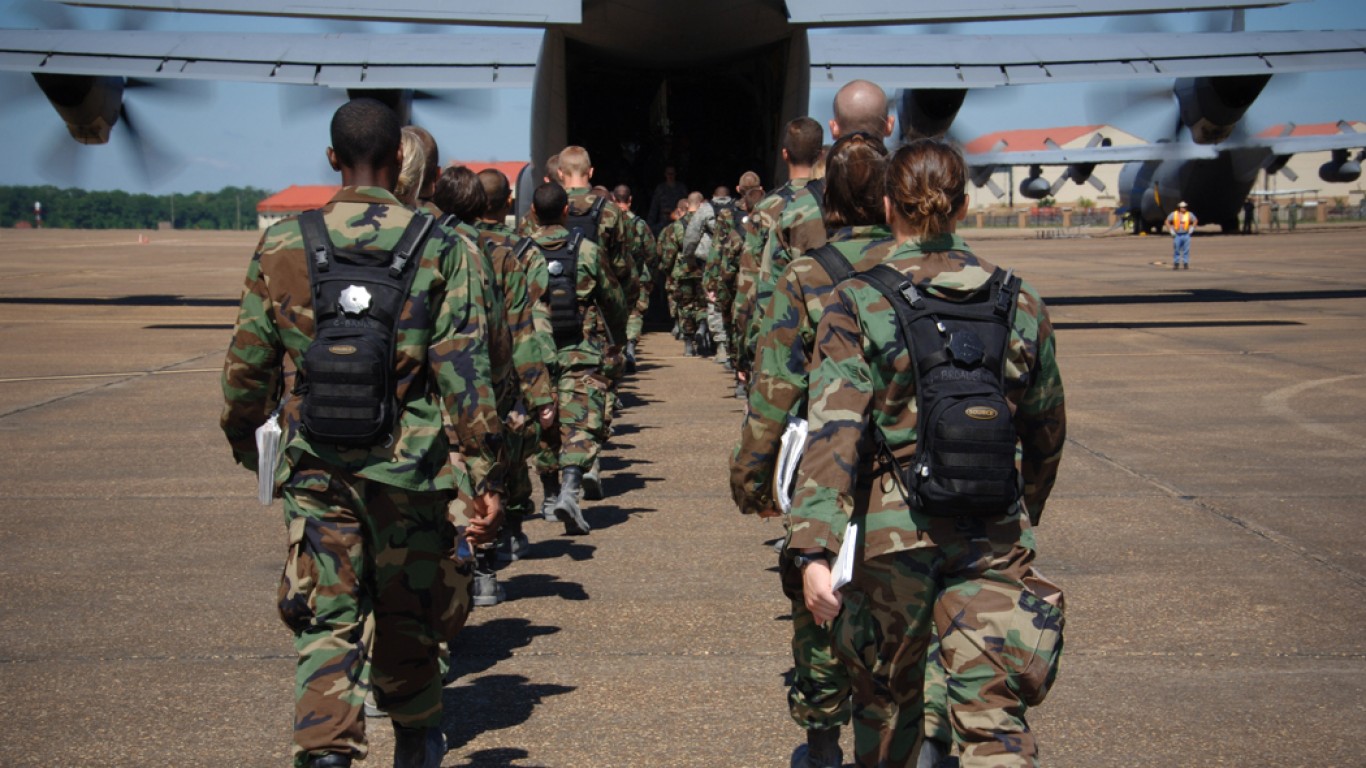
17. Camp Shelby
> State: Mississippi
> Service branch: Air Force
> Physical size (in acres): 136,215
> Active duty service members: 339
Like many camps on this list, Camp Shelby, a mobilization and training center, was opened during World War I. It was the second largest training site during the Second World War and is now involved in the war on terrorism.
[in-text-ad-2]
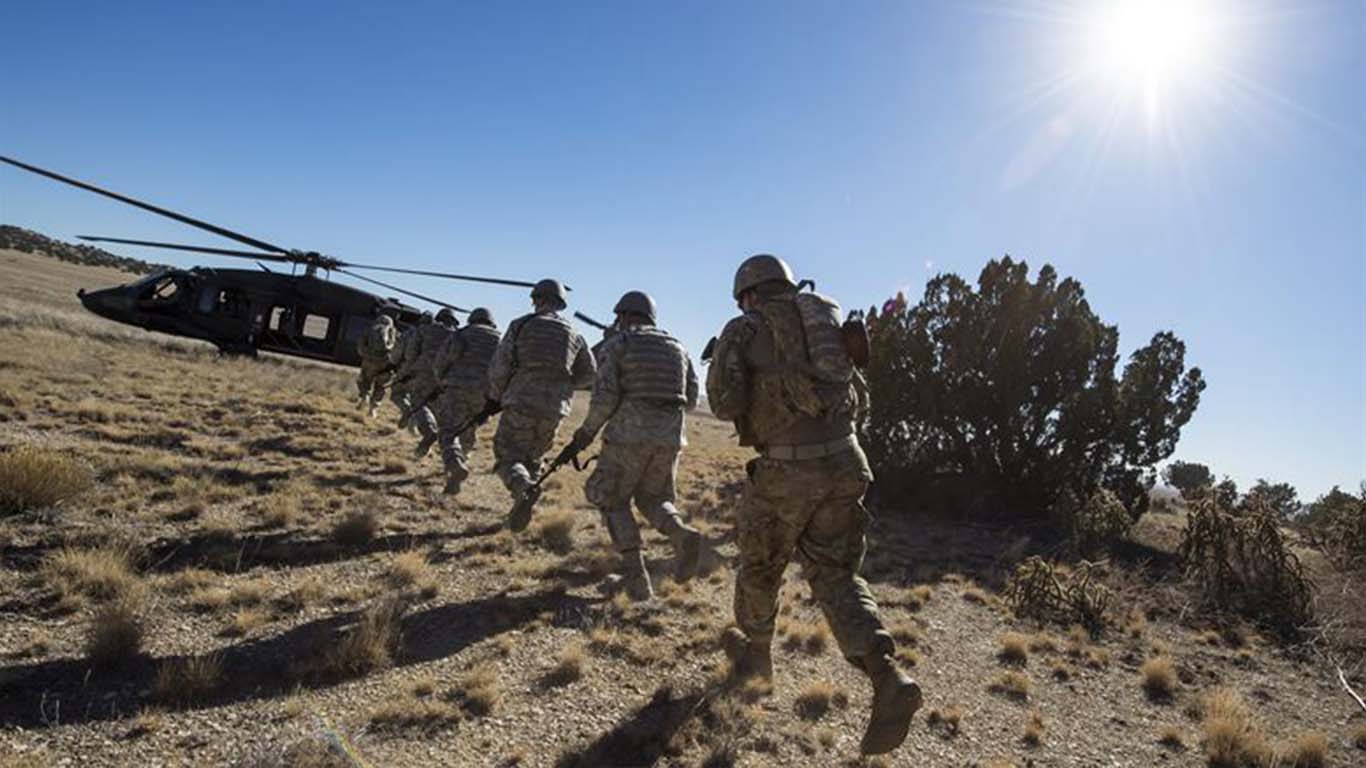
16. Fort Carson
> State: Colorado
> Service branch: Army
> Physical size (in acres): 137,411
> Active duty service members: 24,034
The Pentagon said in July that Fort Carson, known as the “Mountain Post,” is sending about 1,000 more soldiers to Afghanistan, joining two brigades from the Colorado-based facility already stationed in the Asian nation. The deployment will lift the number of troops from Fort Carson in Afghanistan and Eastern Europe to 12,000.
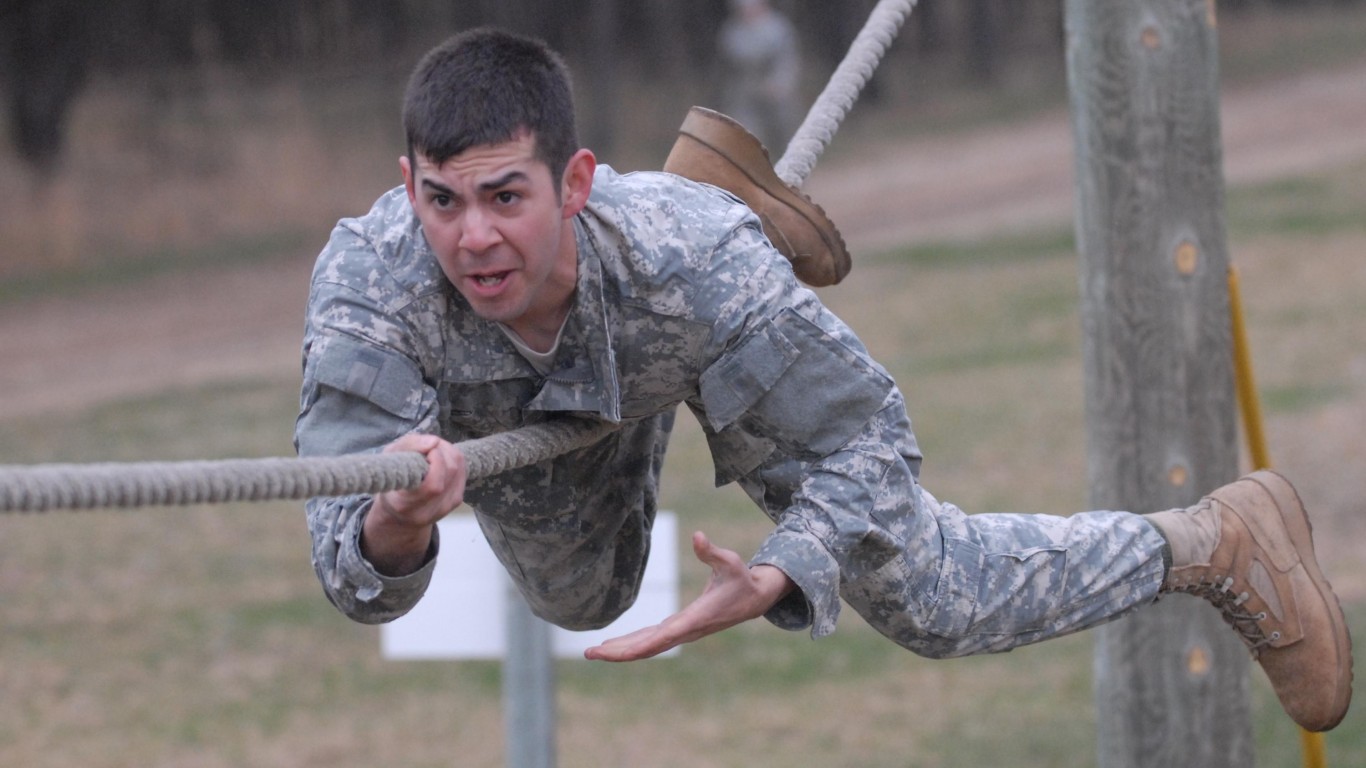
15. Fort McCoy
> State: Wisconsin
> Service branch: Army
> Physical size (in acres): 138,323
> Active duty service members: 245
Fort McCoy is the largest military base in Wisconsin. Since 1990, the federal government has spent more than $265.6 million on new construction at the base.
[in-text-ad]
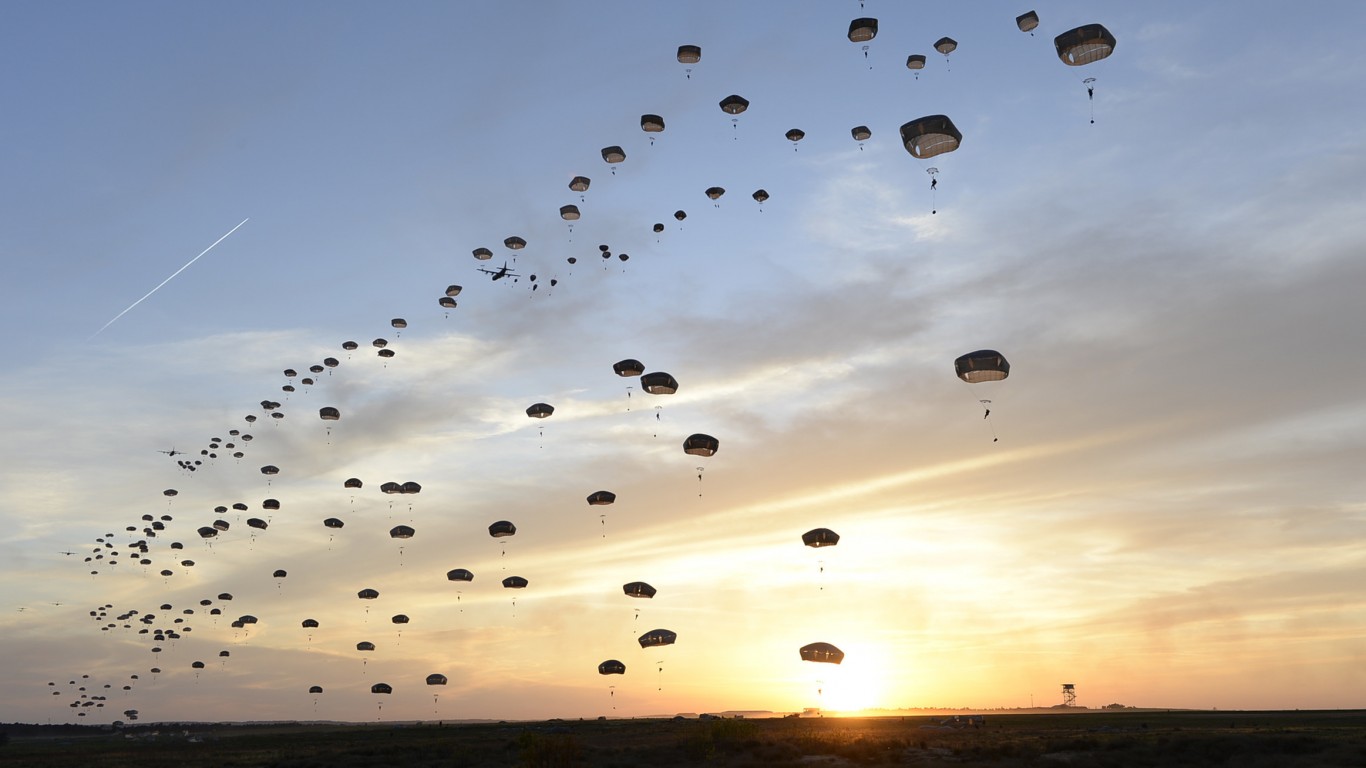
14. Fort Bragg
> State: North Carolina
> Service branch: Army
> Physical size (in acres): 152,085
> Active duty service members: 45,153
This sprawling military base is home to the XVIII Airborne Corps and the 82nd Airborne Division, the U.S. Army Special Operations Command, and the U.S. Army Parachute Team.
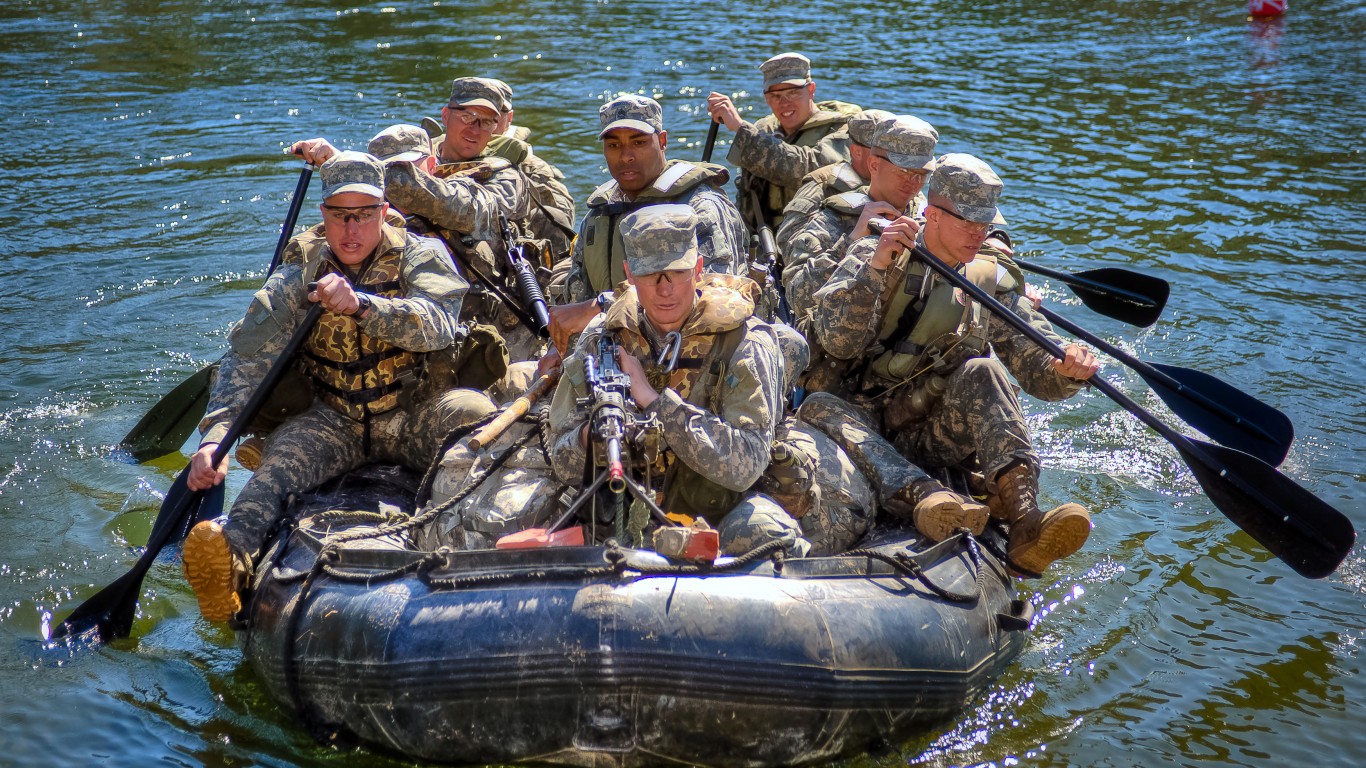
13. Fort Benning
> State: Georgia
> Service branch: Army
> Physical size (in acres): 179,353
> Active duty service members: 19,920
Fort Benning, which is celebrating its centennial this year, has been a center of innovation in areas such as tank maneuver warfare, airborne operations, and airmobile strategy.
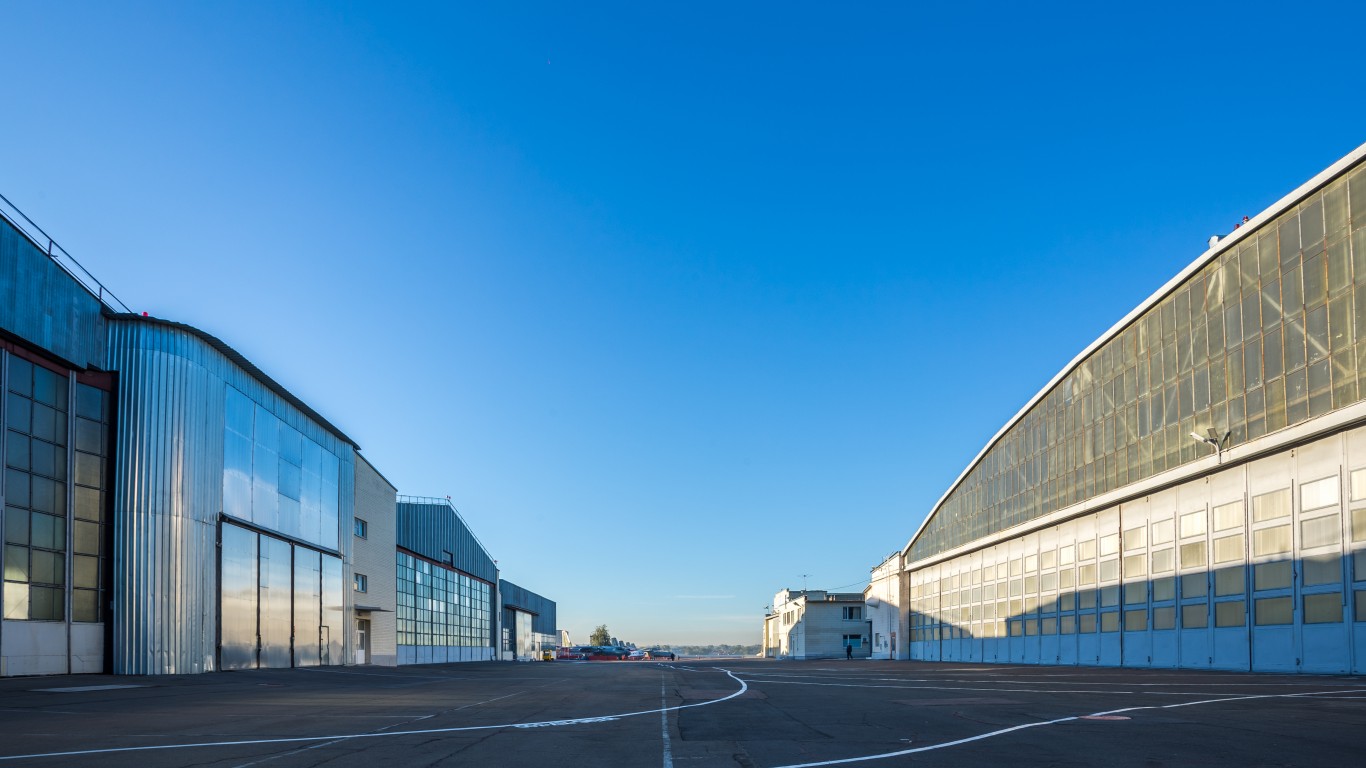
12. Fort Hood
> State: Texas
> Service branch: Army
> Physical size (in acres): 218,025
> Active duty service members: 30,224
Fort Hood is home to the 1st Cavalry Division. The second biggest military installation in Texas suspended live-round firing in July and helped firefighters put out wildfires in Texas.
[in-text-ad-2]
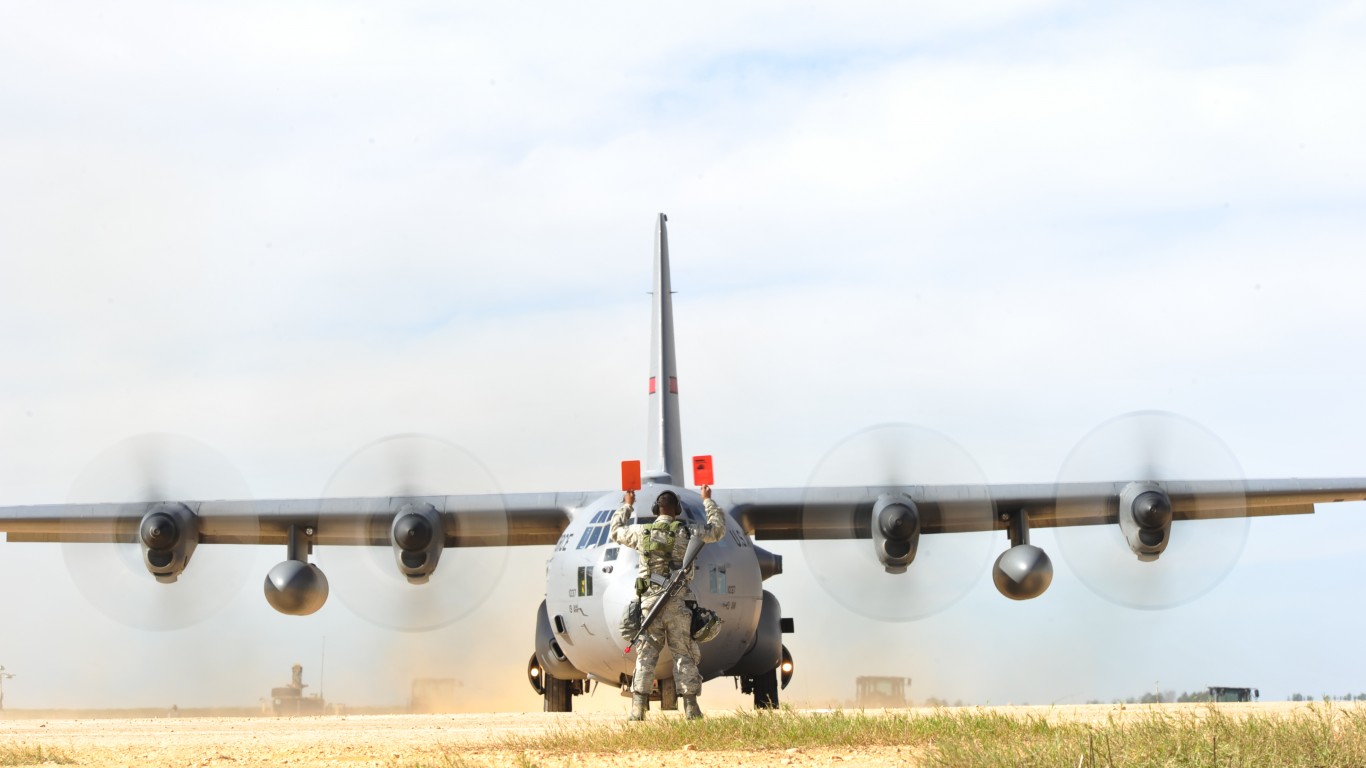
11. Fort Polk
> State: Louisiana
> Service branch: Army
> Physical size (in acres): 240,272
> Active duty service members: 7,611
Fort Polk, named after a Confederate general, is known for its joint training facility, the Joint Readiness Training Center. The installation is constructing new facilities with the intention of providing better training platform for soldiers.
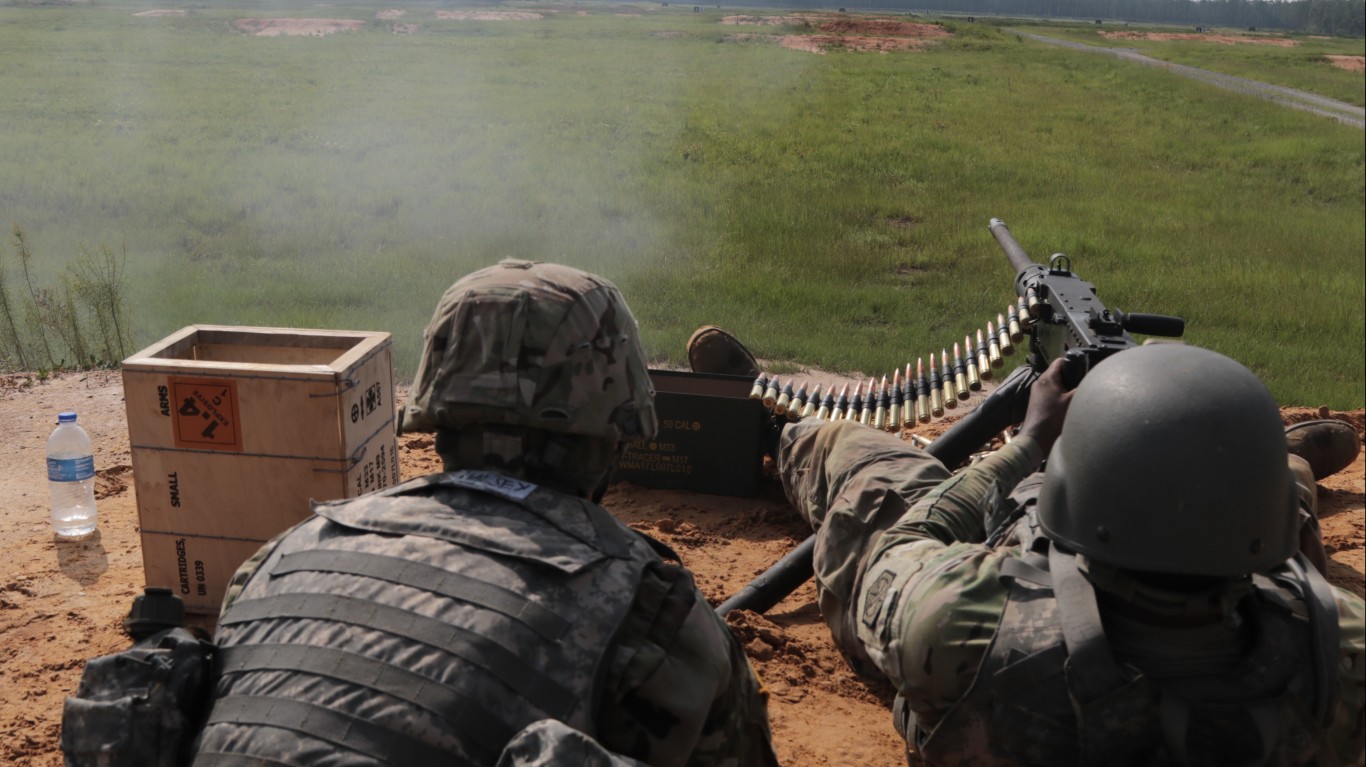
10. Fort Stewart
> State: Georgia
> Service branch: Army
> Physical size (in acres): 279,155
> Active duty service members: 19,791
Fort Stewart is where the 3rd Infantry Division is based. During World War II, the facility housed more than 55,000 soldiers as the United States prepared for the D-Day invasion.
[in-text-ad]
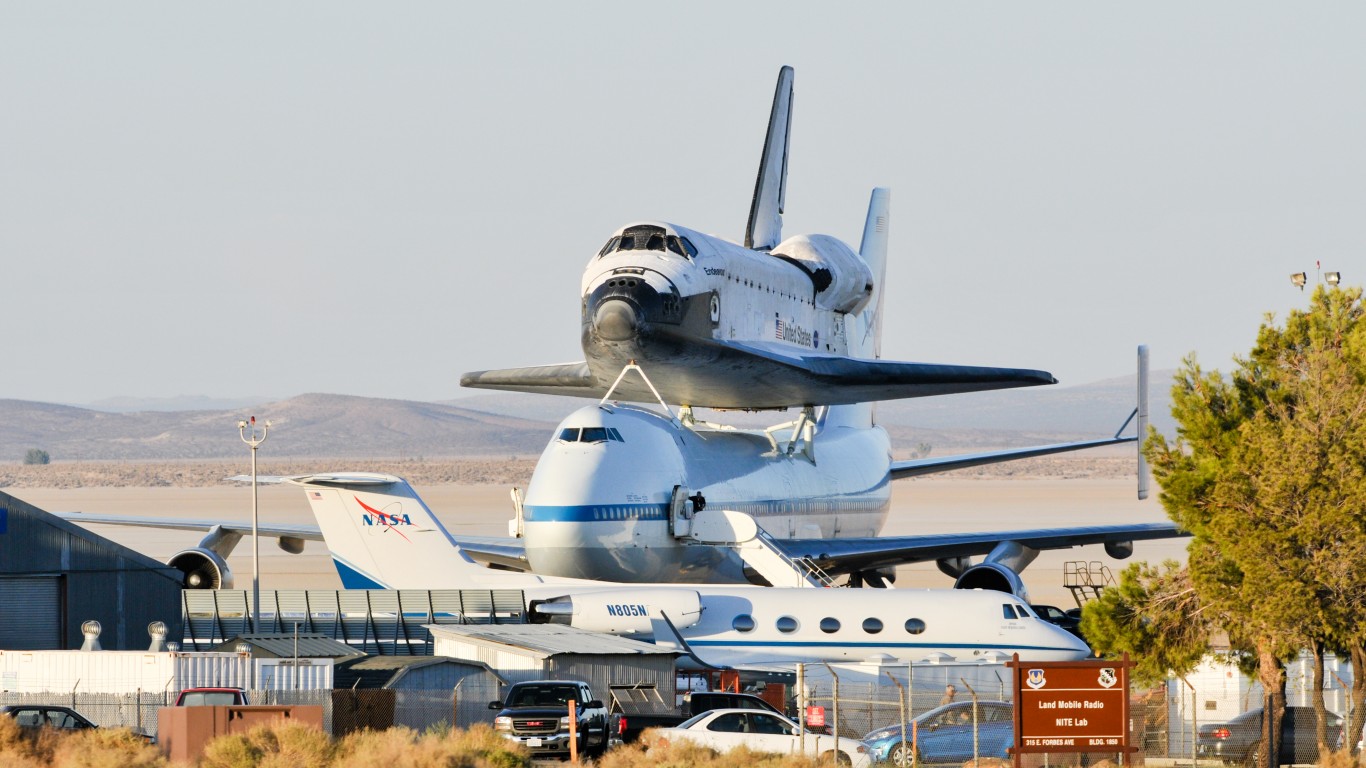
9. Edwards Air Force Base
> State: California
> Service branch: Air Force
> Physical size (in acres): 307,517
> Active duty service members: 2,082
Edwards Air Force Base is the second-largest base in the Air Force. It is home of the 412th Test Wing, which analyzes and tests aircraft and weapons systems.
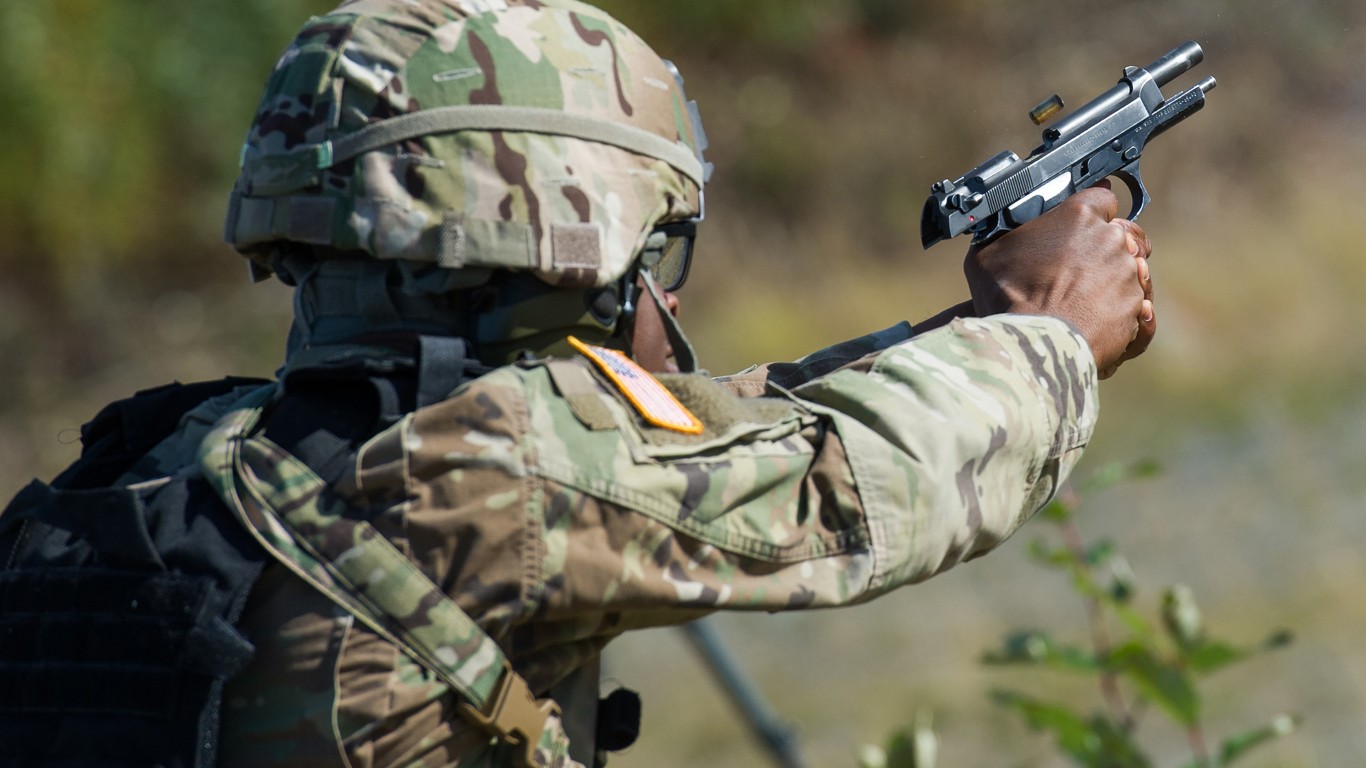
8. Joint Base Lewis-McChord Air Force Base
> State : Washington
> Service branch: Army/Air Force
> Physical size (in acres): 414,000
> Active duty service members: 2,881
Joint Base Lewis-McChord is a combination of Fort Lewis and McChord Air Force Base and is home to the Army’s I Corps and the Air Force’s 62nd Airlift Wing. Among the 62nd’s tasks is airlifting nuclear weapons and materials.
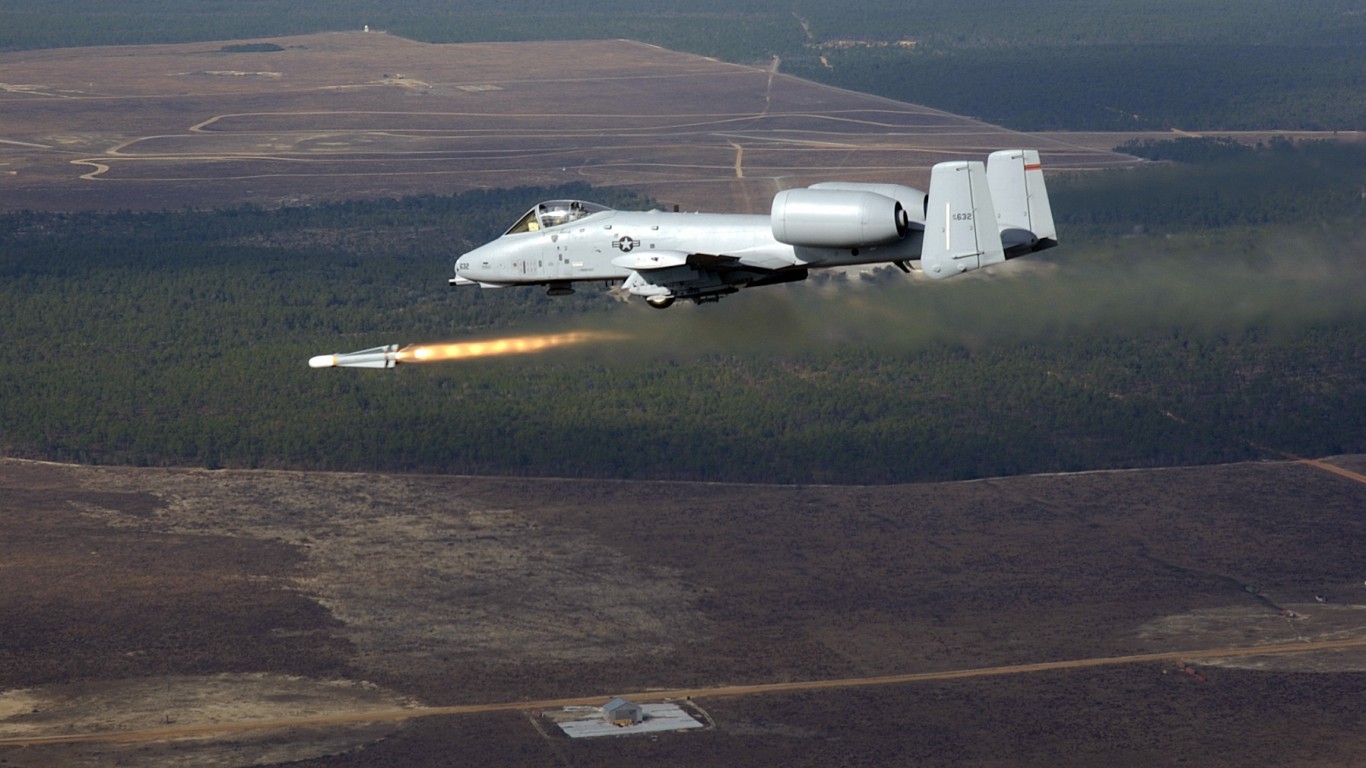
7. Eglin Air Force Base
> State: Florida
> Service branch: Air Force
> Physical size (in acres): 449,421
> Active duty service members: 7,804
Eglin Air Force Base is home to the 96th Test Wing, the largest in the Air Force. The 96th tests non-nuclear munitions, navigational, and guidance systems.
[in-text-ad-2]
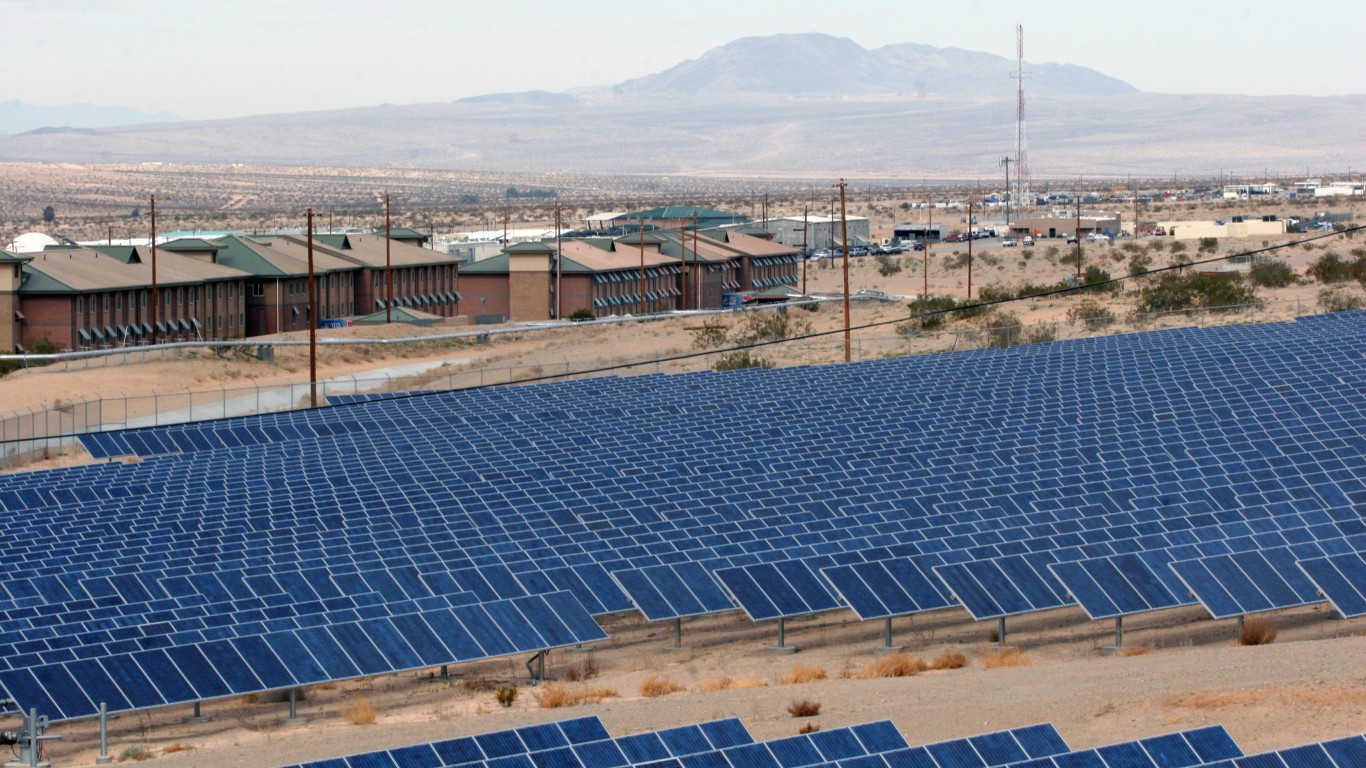
6. 29 Palms Marine Corps Air/Ground Combat Center
> State: California
> Service branch: Marines
> Physical size (in acres): 635,811
> Active duty service members: 9,412
This California-based military installation conducts live-fire, combined arms training to ensure readiness of combat forces.
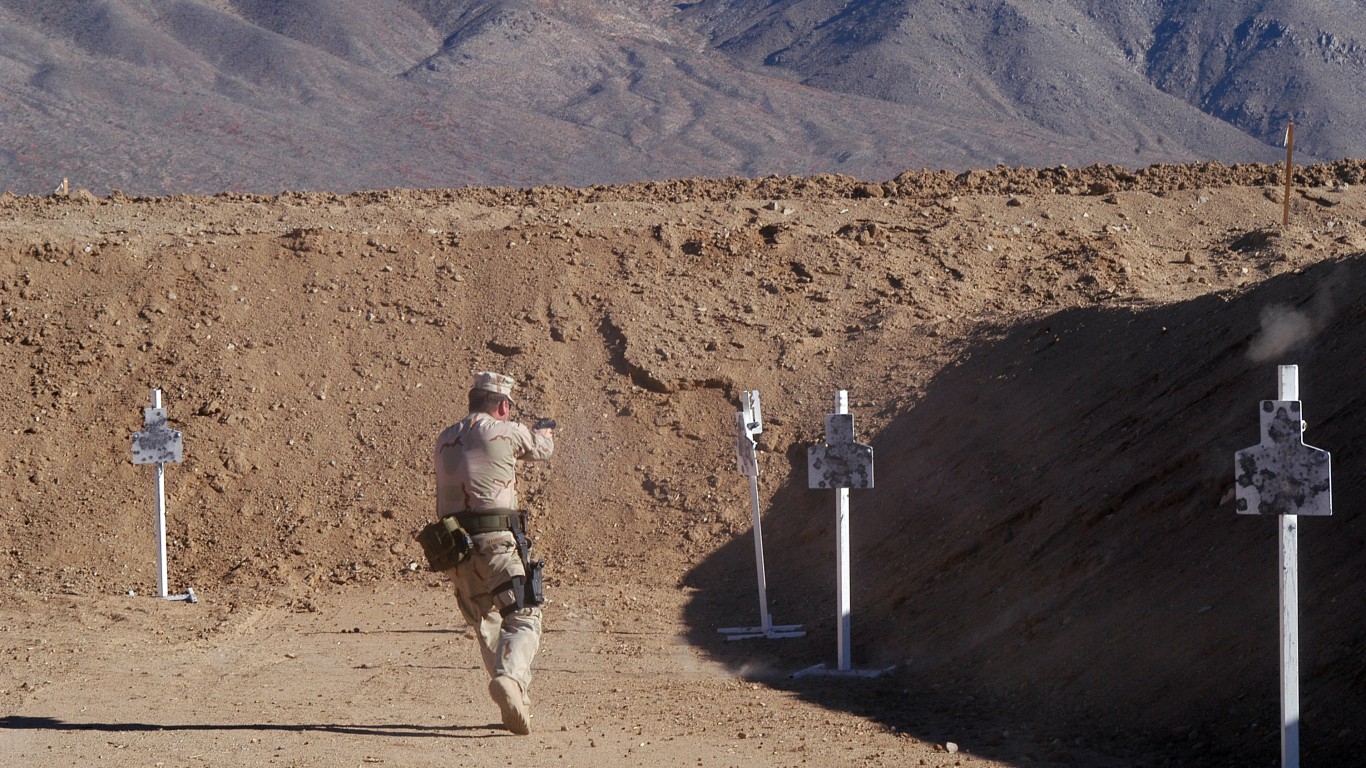
5. China Lake Naval Air Weapons Station
> State: California
> Service branch: Navy
> Physical size (in acres): 651,739
> Active duty service members: 587
China Lake Naval Air Weapons Station, located in the western part of the Mojave Desert, is the Navy’s largest single land holding, representing 38% of the Navy’s land possessions worldwide. China Lake provides assets to test cutting-edge weapons systems.
[in-text-ad]
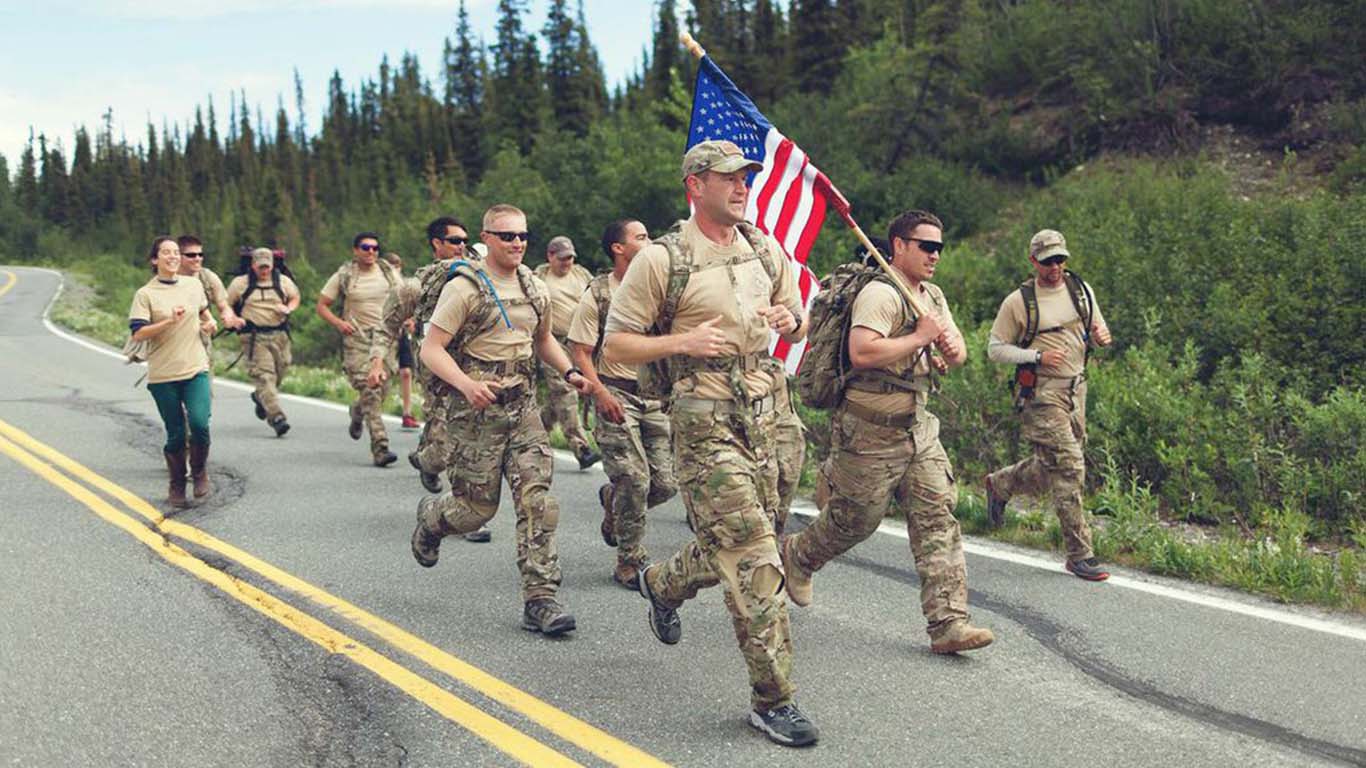
4. Fort Jonathan Wainwright
> State: Alaska
> Service branch: Army
> Physical size (in acres): 697,300
> Active duty service members: 7,199
Fort Jonathan Wainwright, the biggest physical military facility in Alaska, was first established as an Army Air Corps base in 1939 to test aircraft in Arctic conditions.
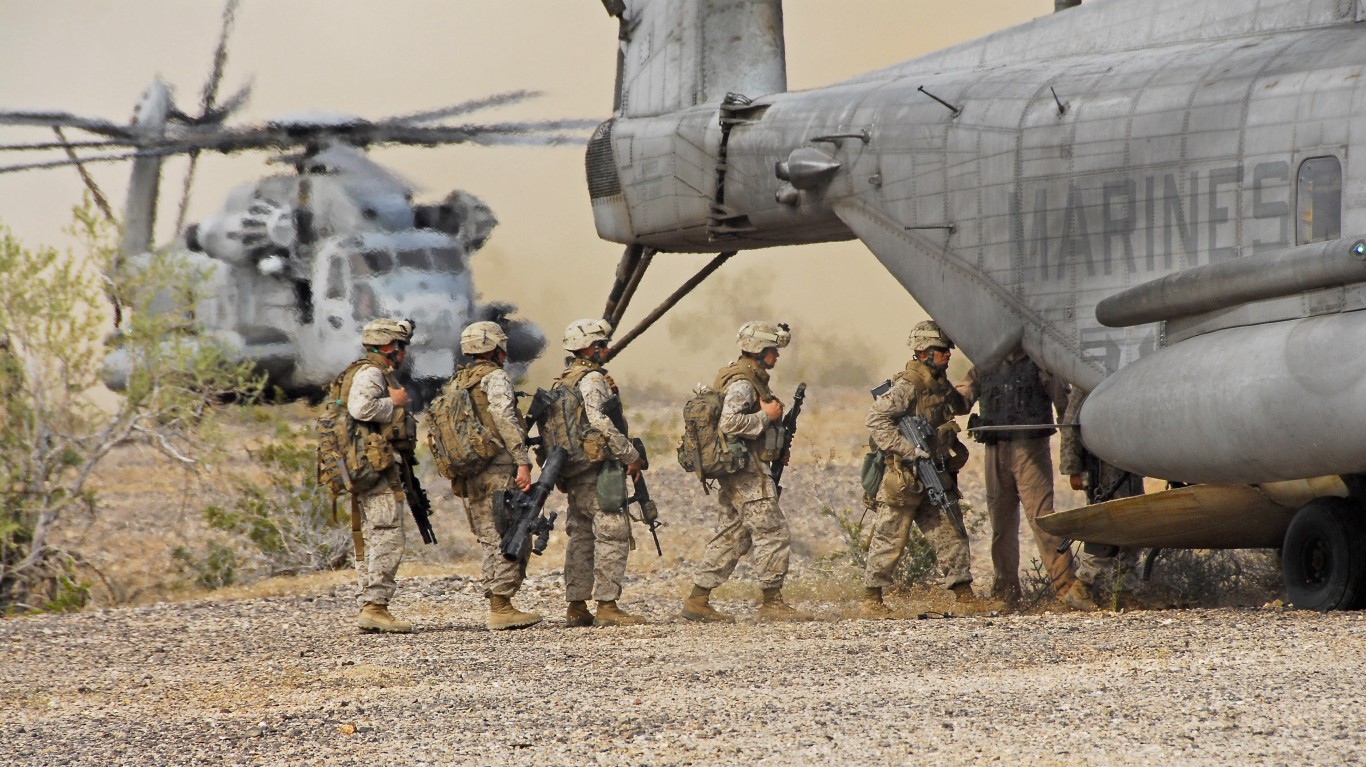
3. Yuma Proving Ground
> State: Arizona
> Service branch: Army
> Physical size (in acres): 1,008,913
> Active duty service members: 128
Yuma Proving Ground is one of the largest military installations in the world and is used by 10 other nations for weapons testing. The AH-64 Apache helicopter, the M-1 Abrams tank, and the Bradley Fighting Vehicle underwent developmental training at Yuma.
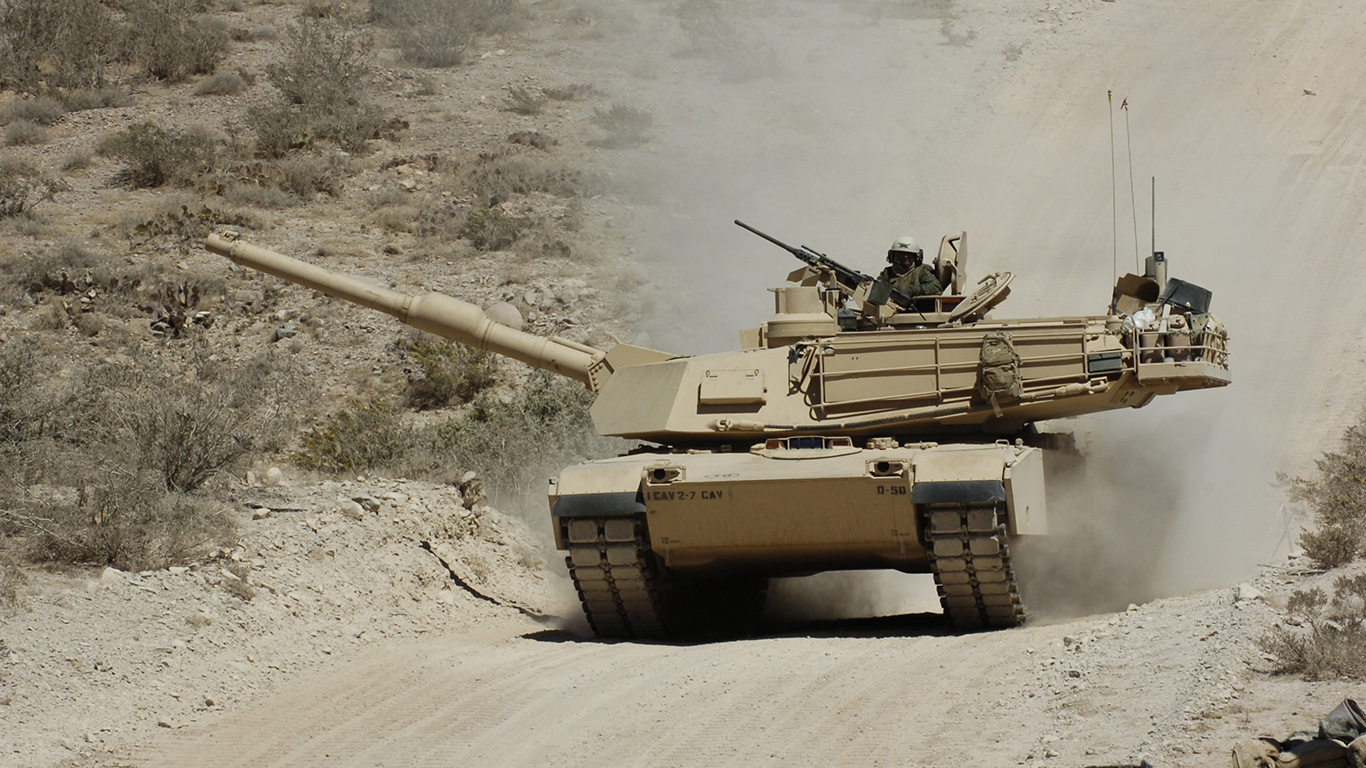
2. Fort Bliss
> State: Texas
> Service branch: Army
> Physical size (in acres): 1,332,807
> Active duty service members: 25,546
Staff Sgt. Amanda Kelley, stationed at Fort Bliss, became the first enlisted woman to graduate from the U.S. Army’s Ranger School in late August. Fort Bliss is known for its Ranger training regimen.
[in-text-ad-2]
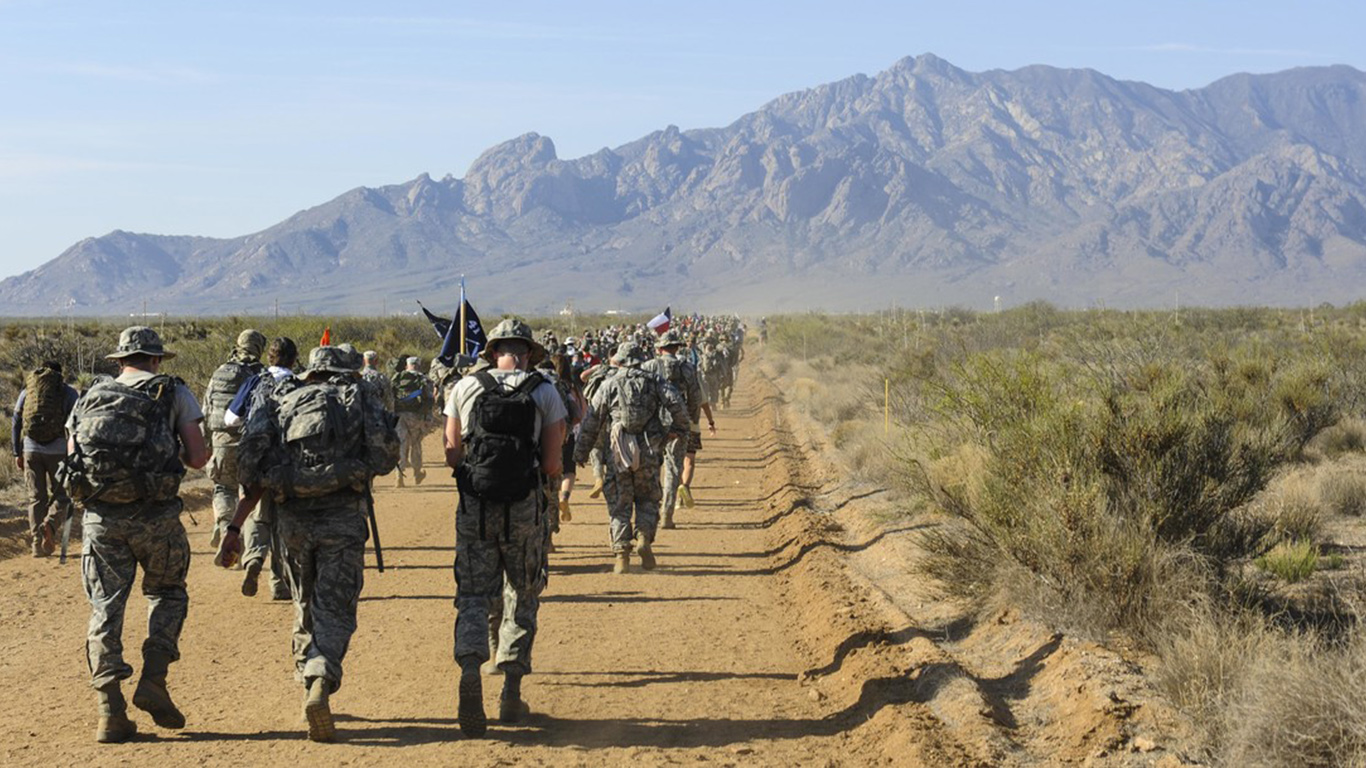
1. White Sands Missile Range
> State: New Mexico
> Service branch: Army
> Physical size (in acres): 3,542,862
> Active duty service members: 338
With more than 3.5 million acres, White Sands Missile Range is the nation’s largest open air firing range. NASA also used White Sands for a landing site during the Space Shuttle operation. Satellite tests also are held there.
Detailed findings:
Maintaining these facilities comes with a large price tag. In July, Congress approved $717 billion in military spending for fiscal 2019. Though much of the funding goes toward paying military service men and women — there are more than 1.1 million active duty service men and women on bases in U.S. — the bill covers the development of weapons systems, strategic defense technology, as well as maintaining base operations.
Many of the bases were built during World War I, and a handful are older. As one might expect, the biggest of the military installations are in the physically largest states — Alaska, Texas, California, New Mexico, and Arizona.
The western states are less constrained by geography, have vast swaths of desert, and are less densely populated than the eastern part of the nation. California has dozens of military installations that use the desert and the Pacific Ocean to test weaponry.
Three military installations — Yuma Proving Ground in Arizona, Fort Bliss in Texas, and White Sands Missile Range in New Mexico — each span more than 1 million acres. White Sands is larger than such states as Rhode Island and Connecticut.
In addition to their enormous physical footprint, these bases also have significant economic impacts on their communities. According to an analysis in 2015 by the Department of Defense, military spending as a share of the state GDP was highest in Virginia (11.8%), followed by Hawaii (9.9%). In dollar amounts, military spending was highest in Virginia, totaling $53 billion, and second highest in California, at $49.3 billion.
Methodology:
To create the list of the nation’s largest military bases, 24/7 Wall Street used data compiled by the Department of Defense’s Base Structure Report for fiscal year 2017. The report includes the physical size of military installations in acres. Personnel counts data was obtained from the 2016 Demographics Report, compiled by Defense Department contractor Military OneSource.
Are You Ahead, or Behind on Retirement? (sponsor)
If you’re one of the over 4 Million Americans set to retire this year, you may want to pay attention.
Finding a financial advisor who puts your interest first can be the difference between a rich retirement and barely getting by, and today it’s easier than ever. SmartAsset’s free tool matches you with up to three fiduciary financial advisors that serve your area in minutes. Each advisor has been carefully vetted, and must act in your best interests. Start your search now.
Don’t waste another minute; get started right here and help your retirement dreams become a retirement reality.
Thank you for reading! Have some feedback for us?
Contact the 24/7 Wall St. editorial team.
 24/7 Wall St.
24/7 Wall St. 24/7 Wall St.
24/7 Wall St. 24/7 Wall St.
24/7 Wall St. 24/7 Wall St.
24/7 Wall St.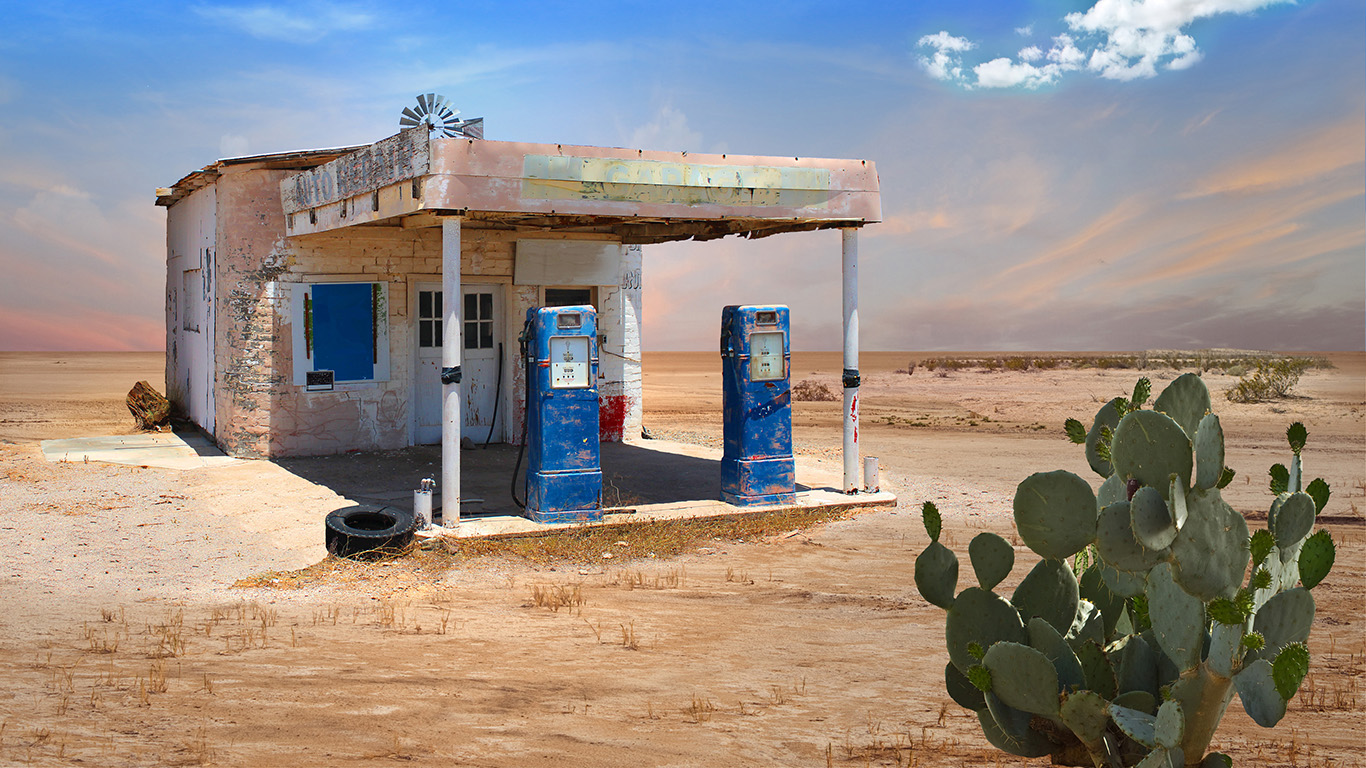 24/7 Wall St.
24/7 Wall St. 24/7 Wall St.
24/7 Wall St. 24/7 Wall St.
24/7 Wall St.
